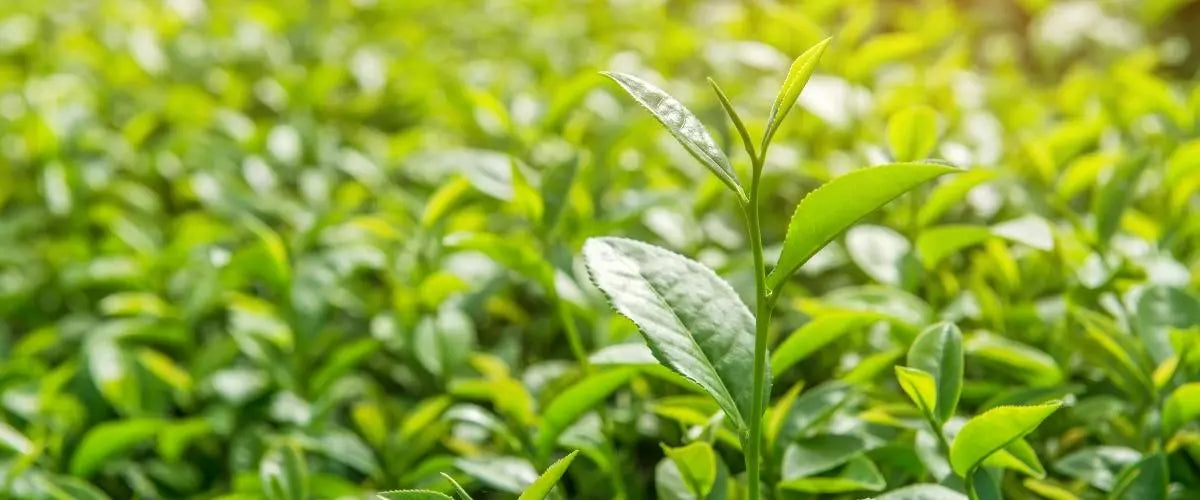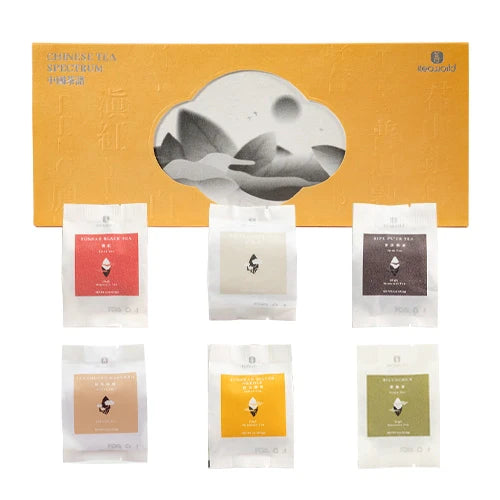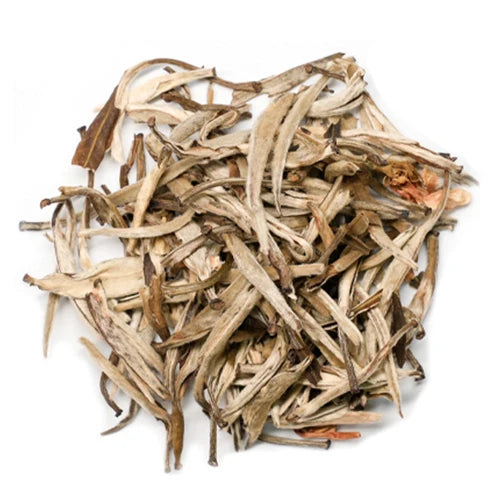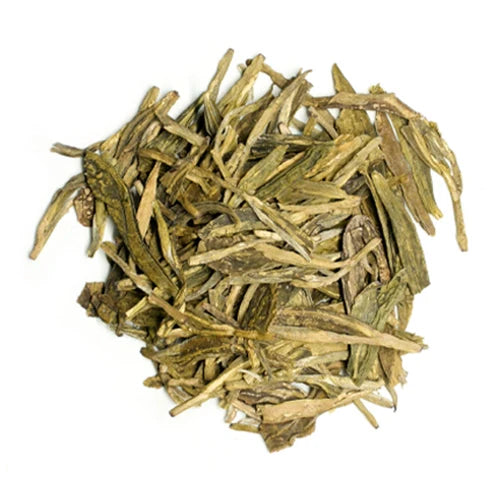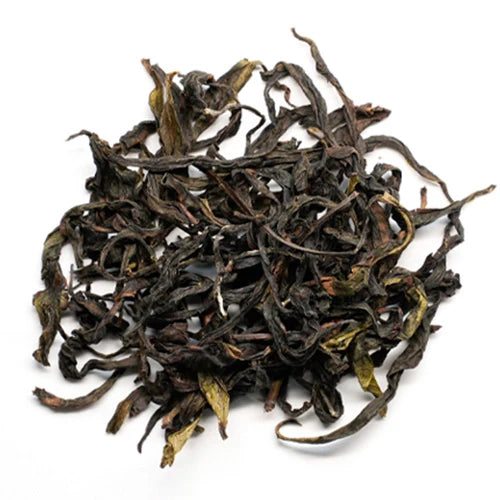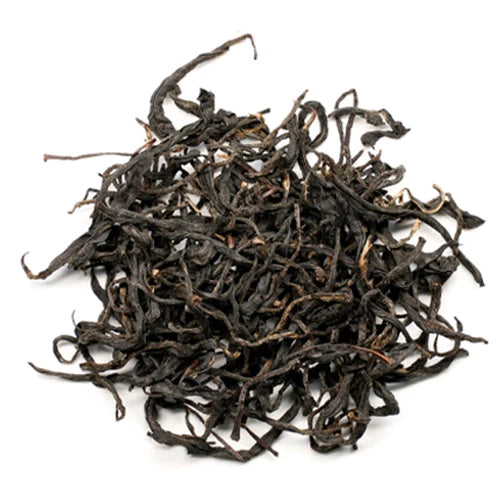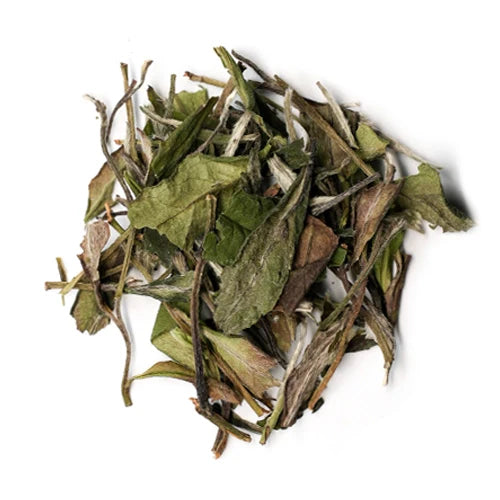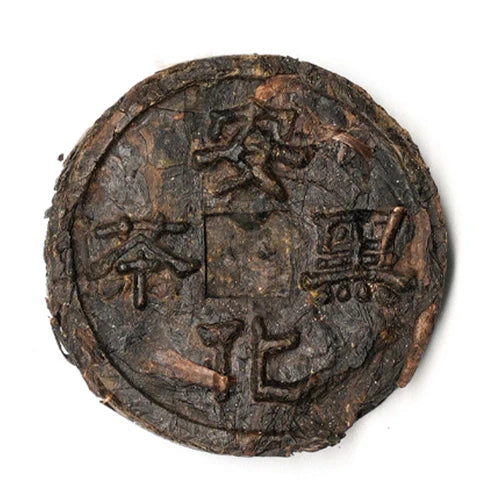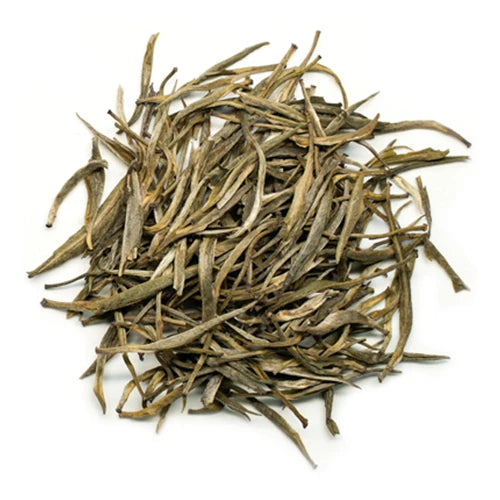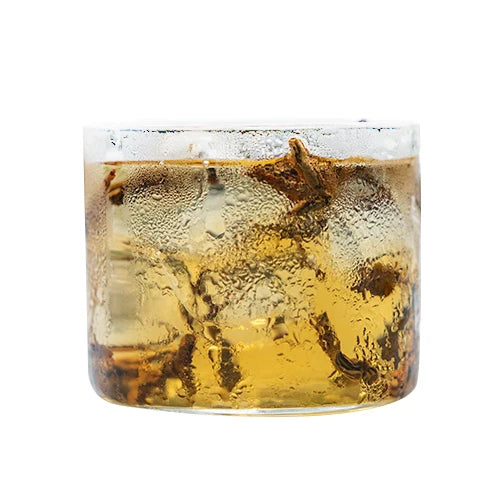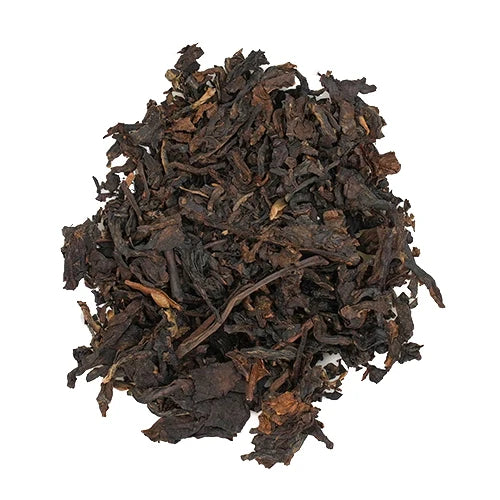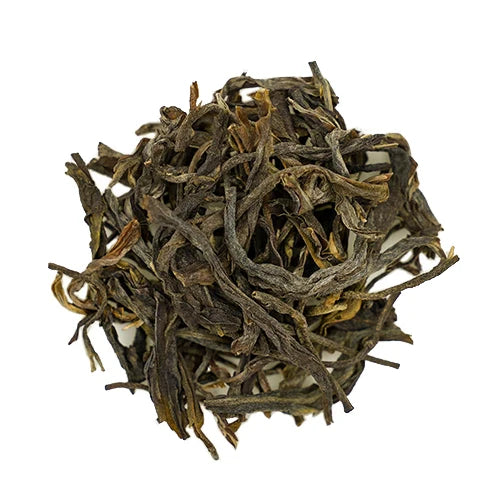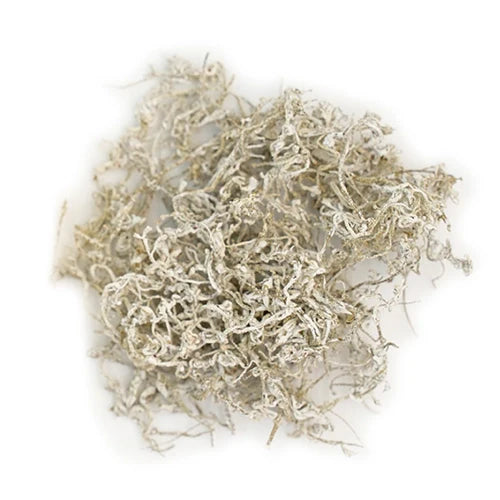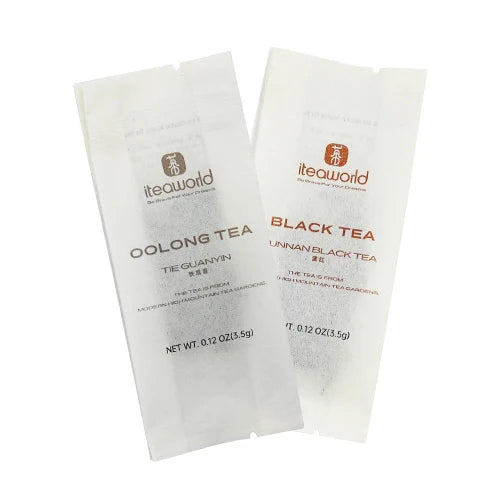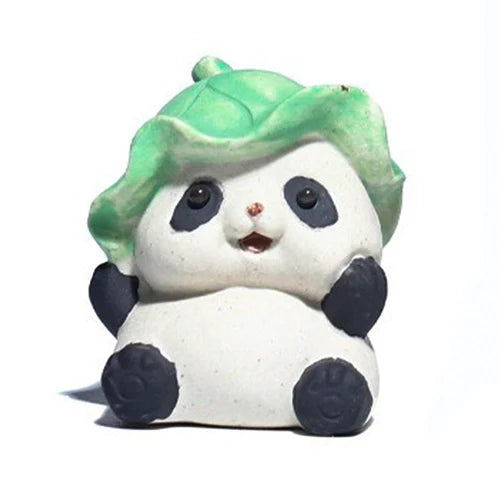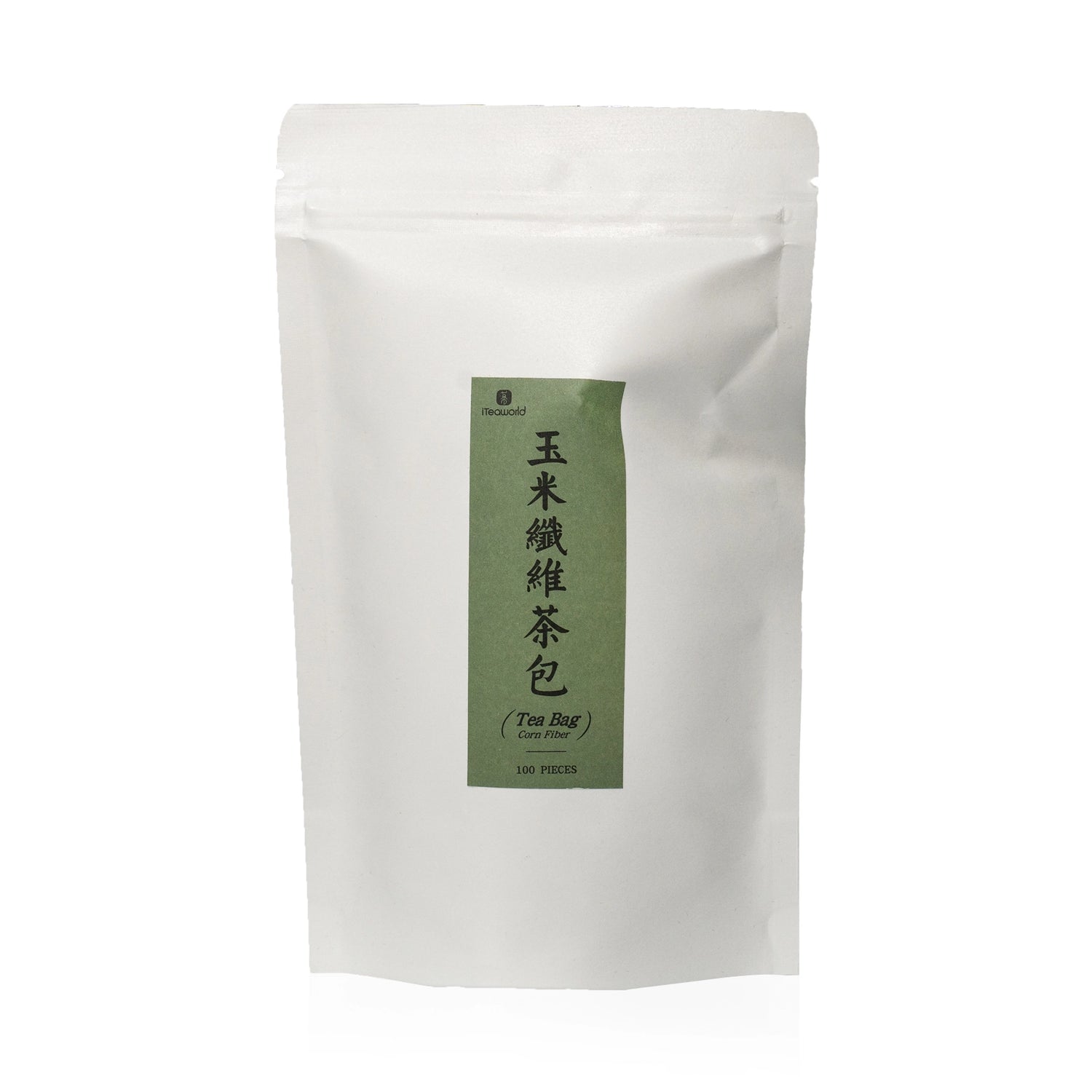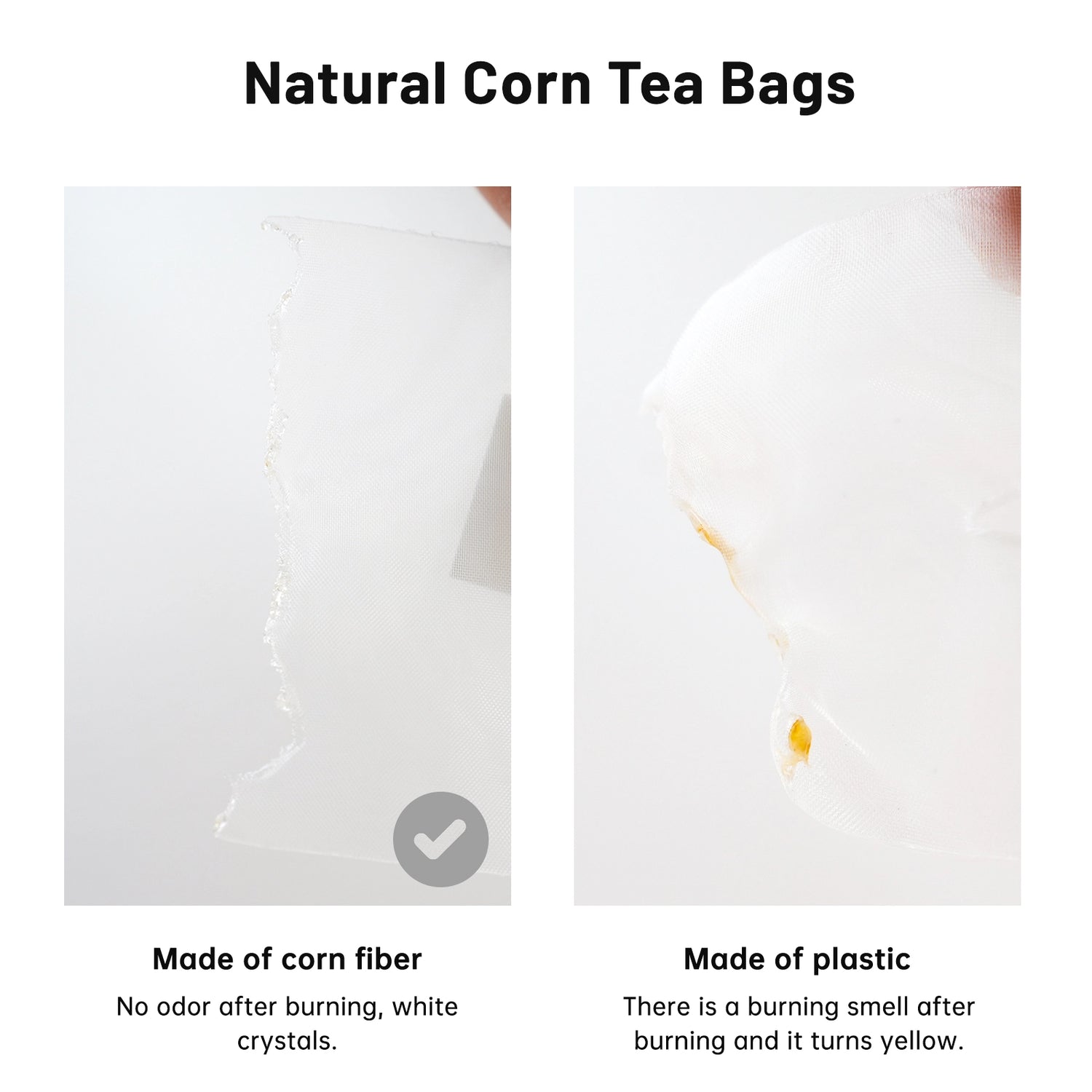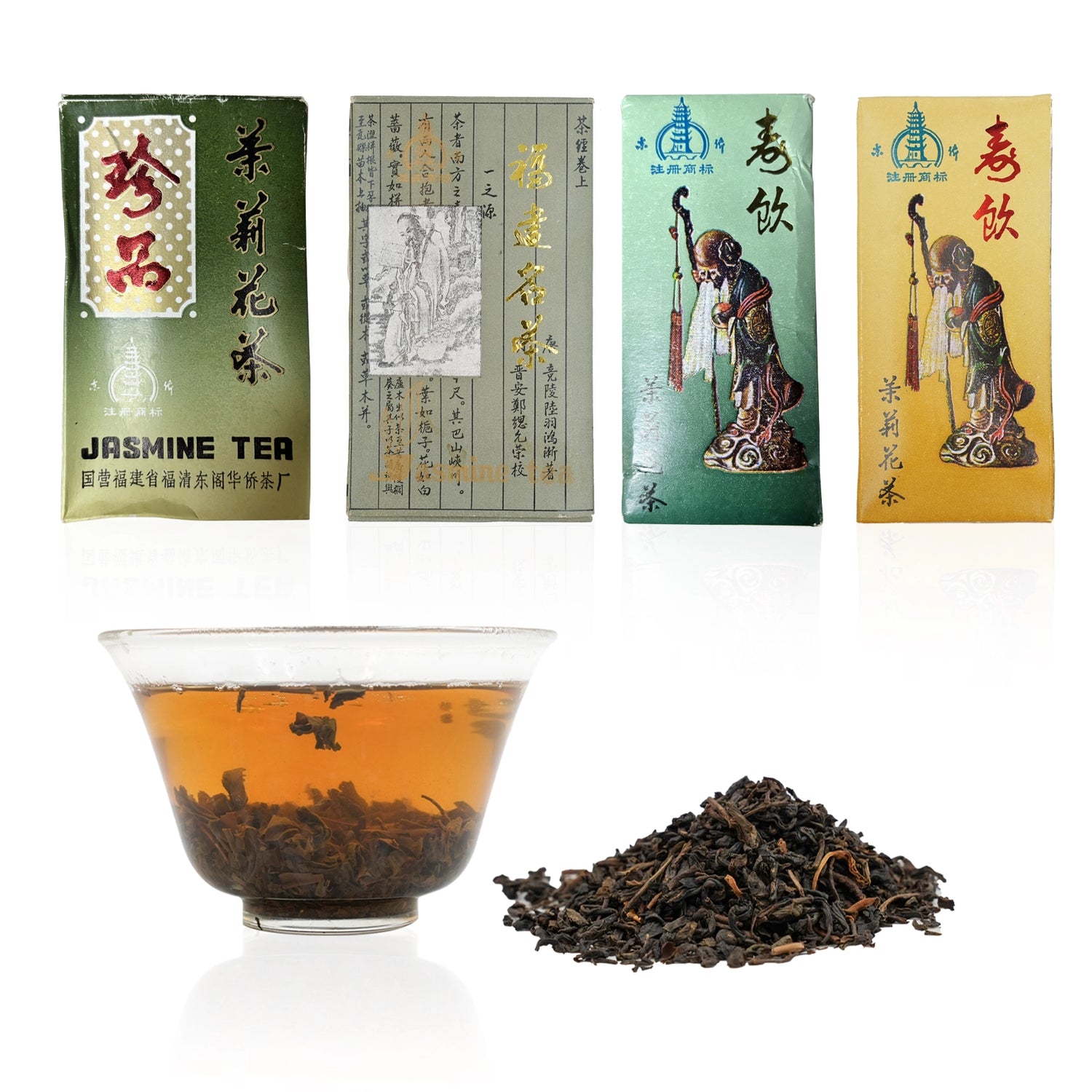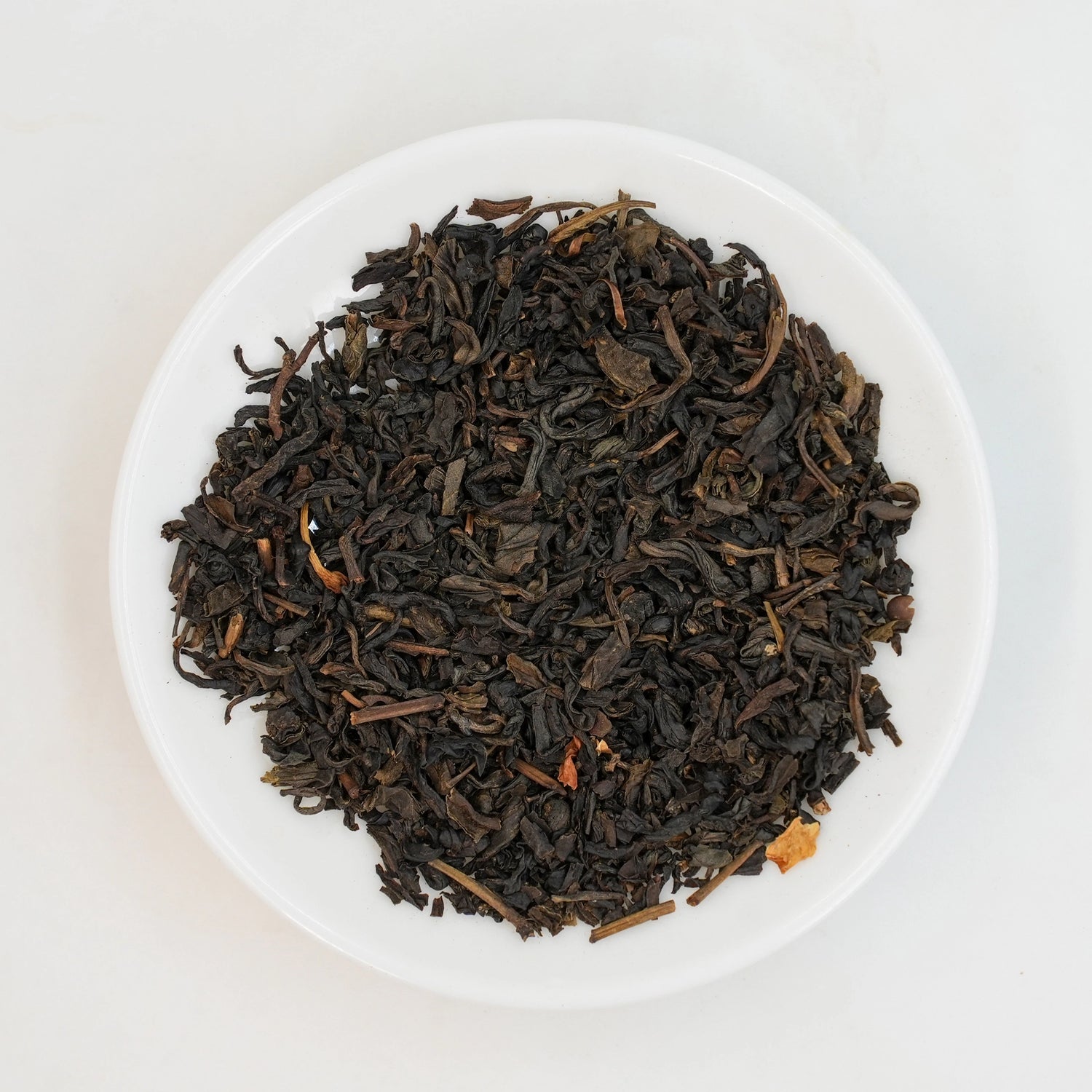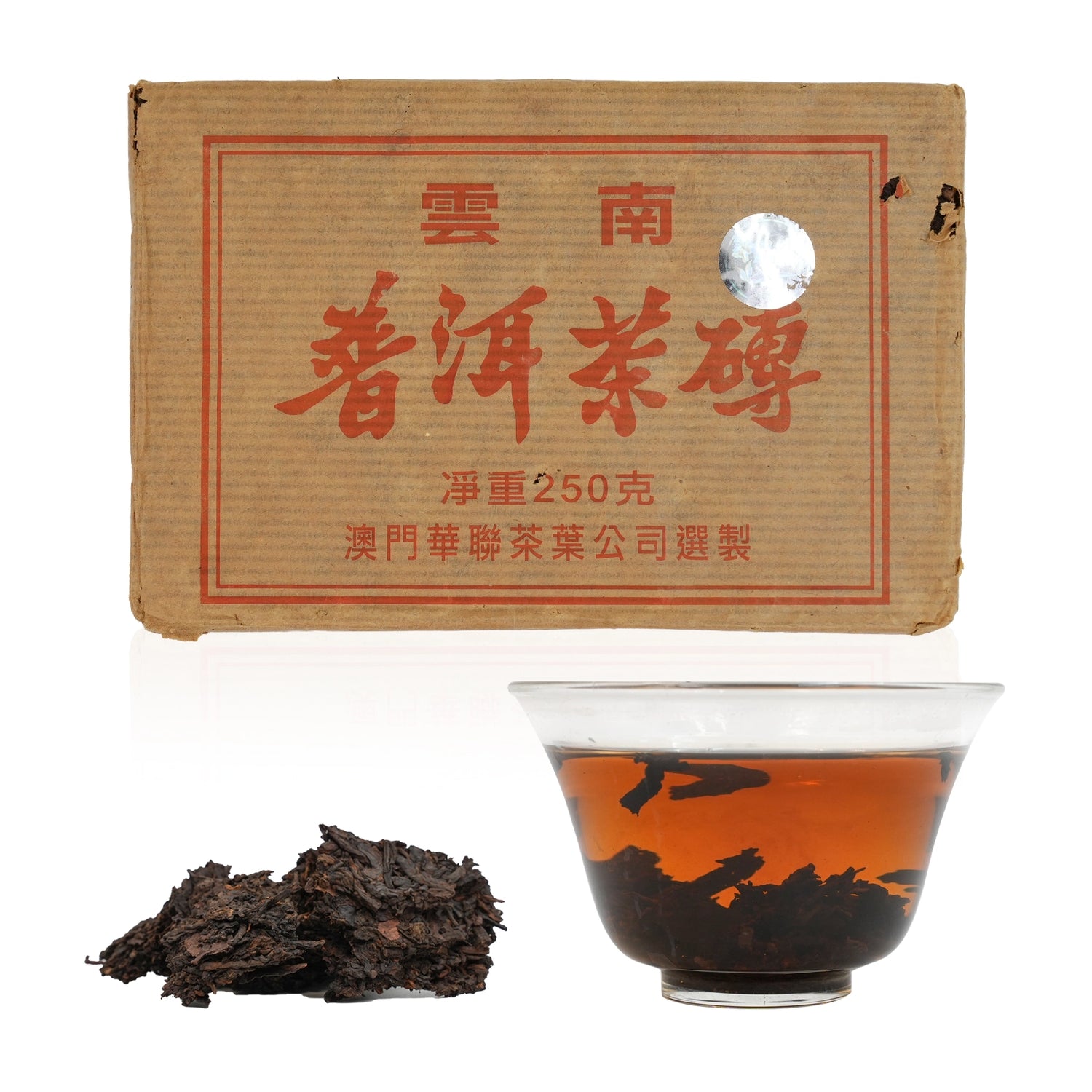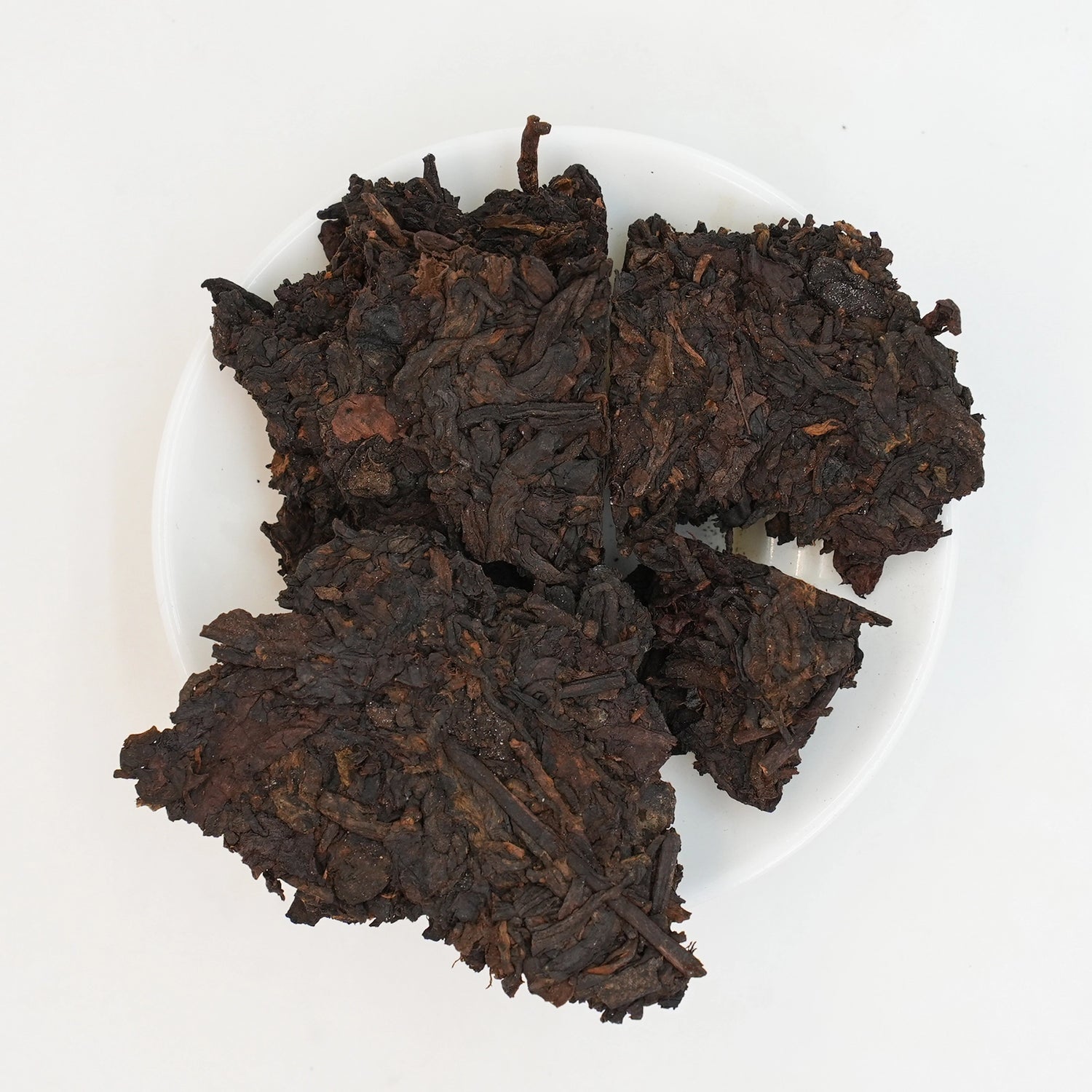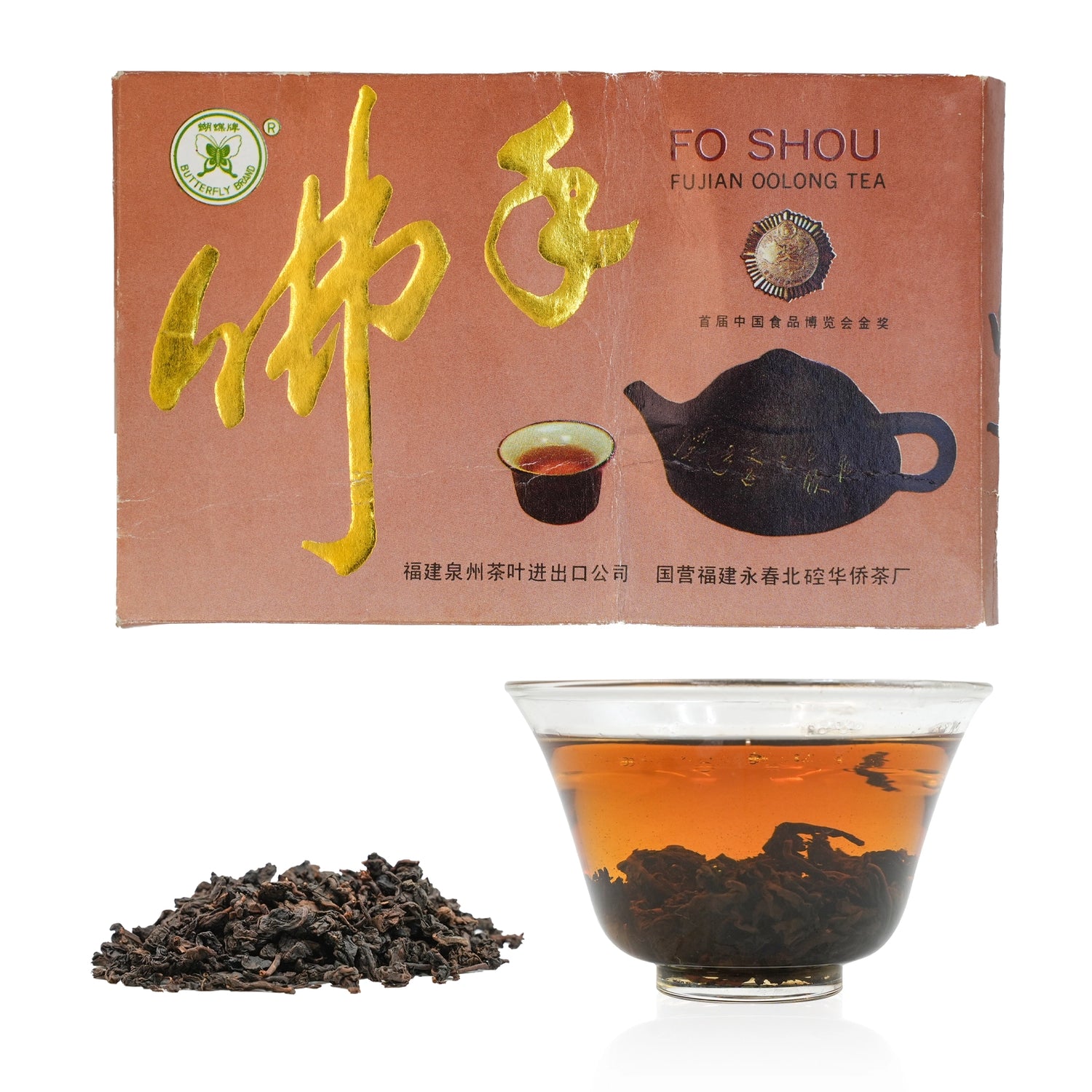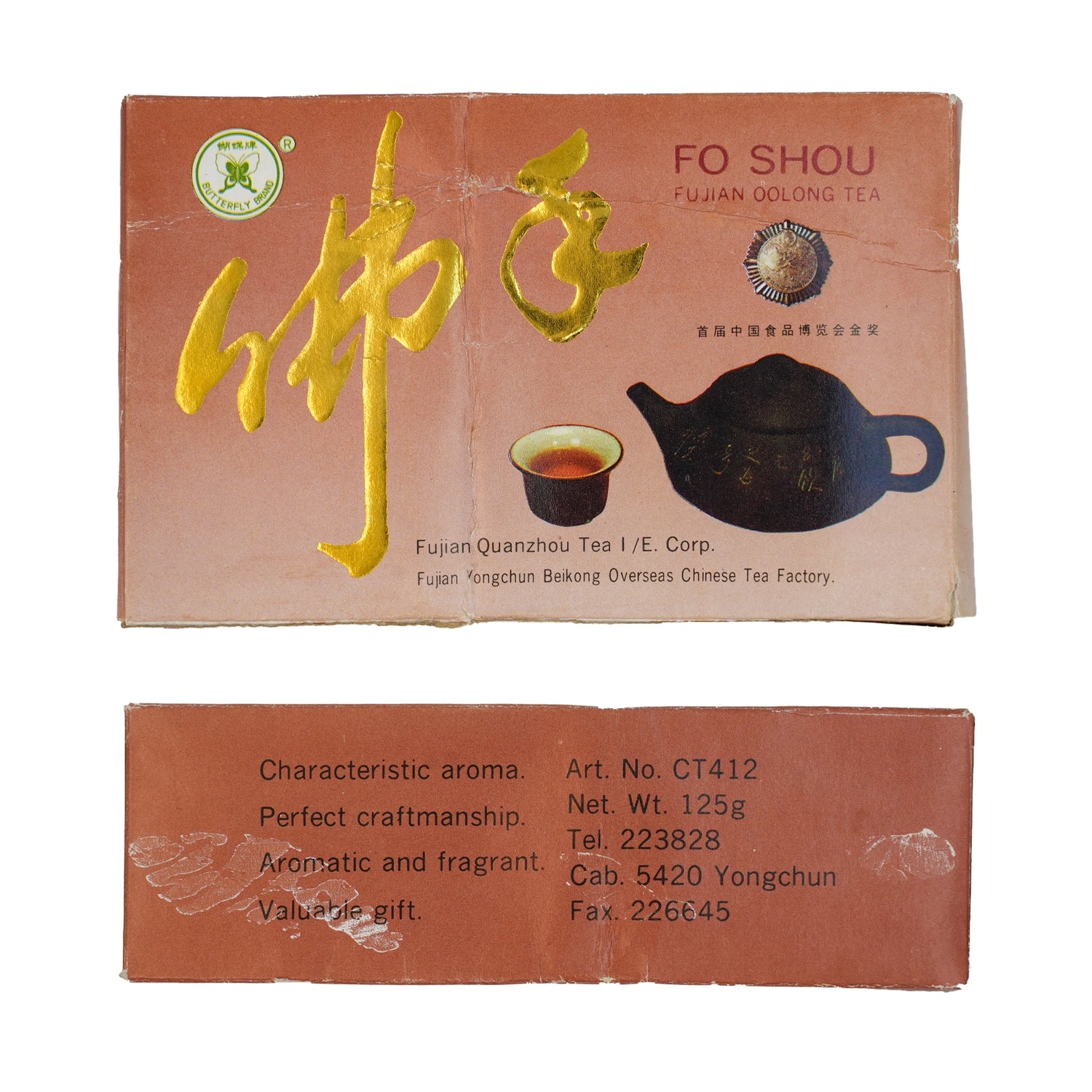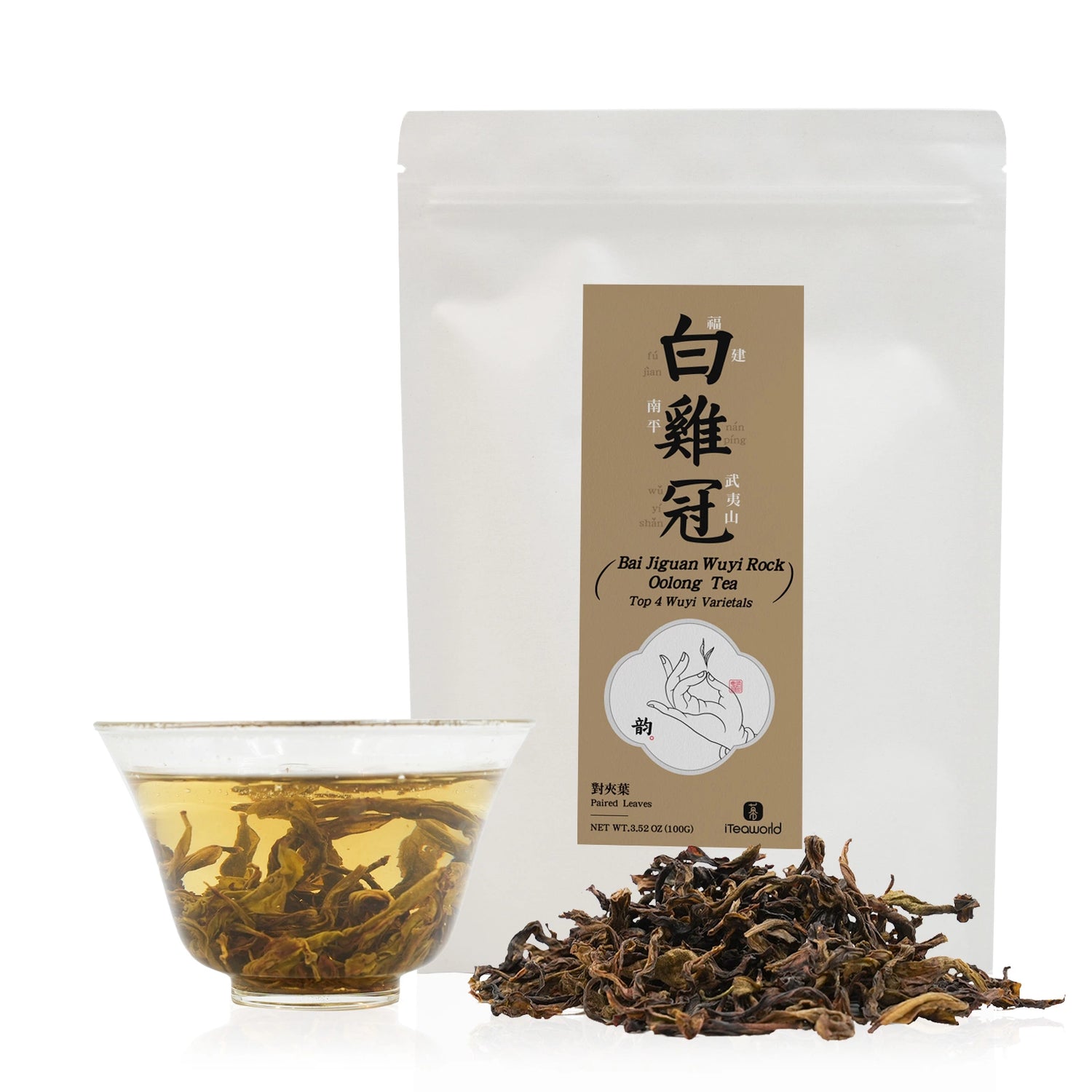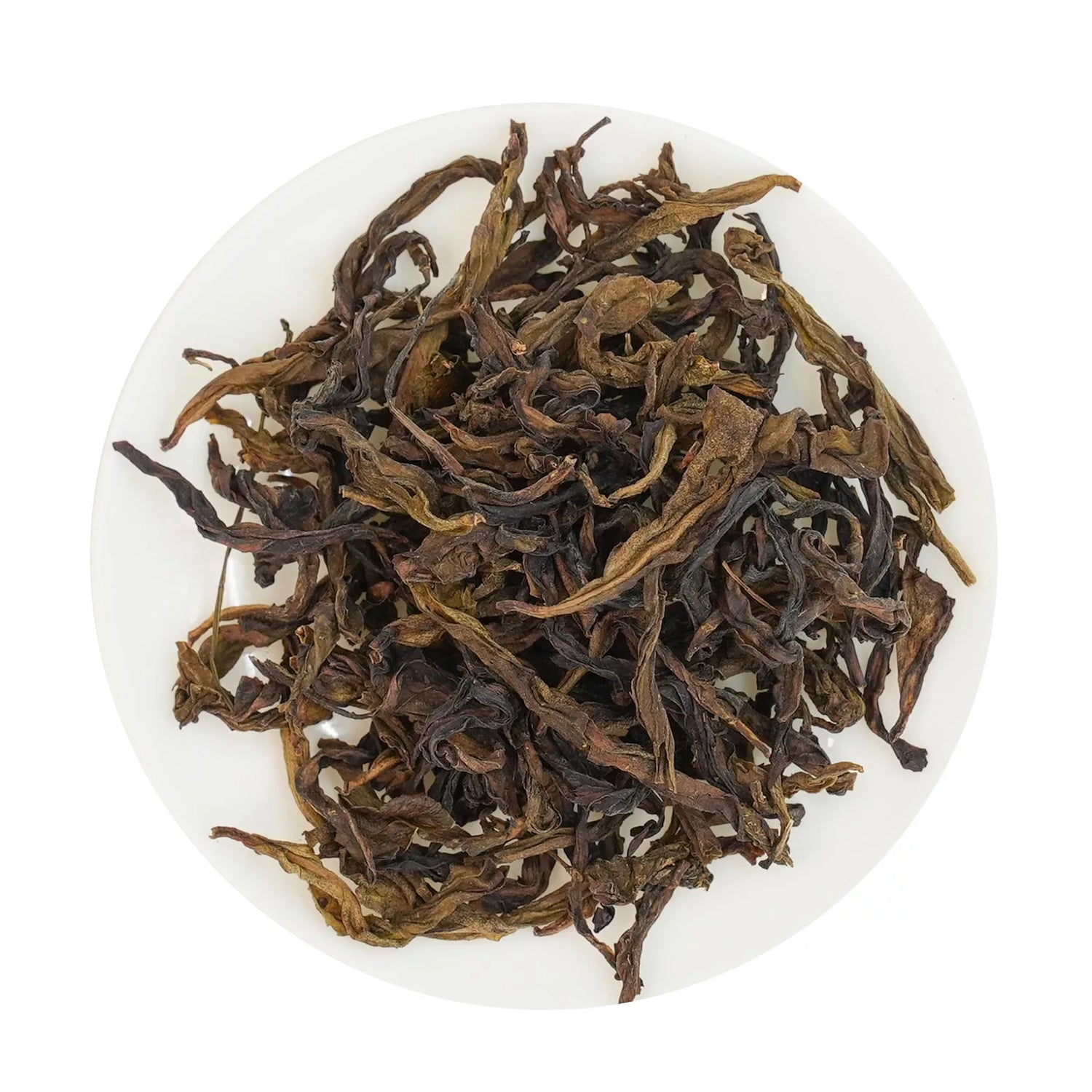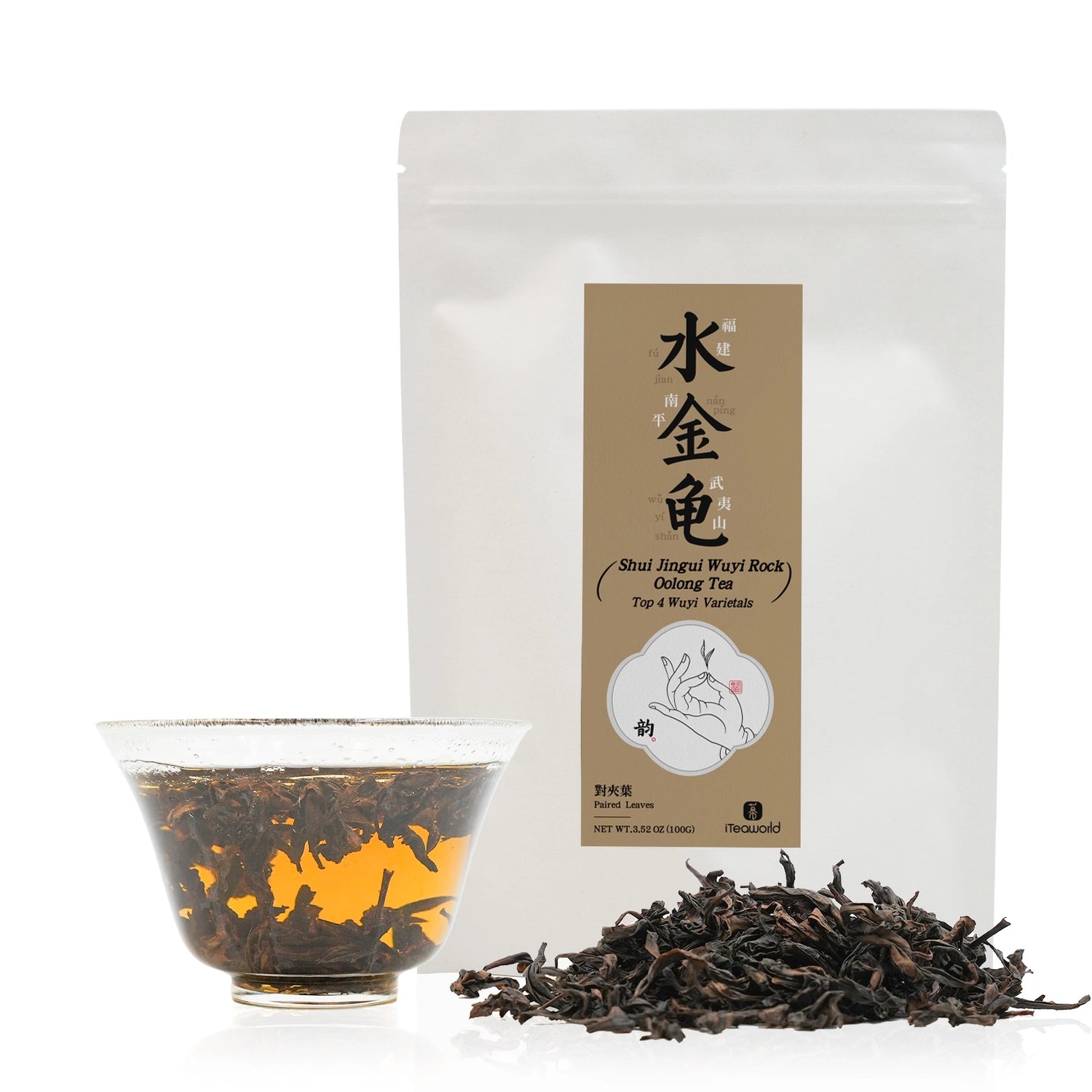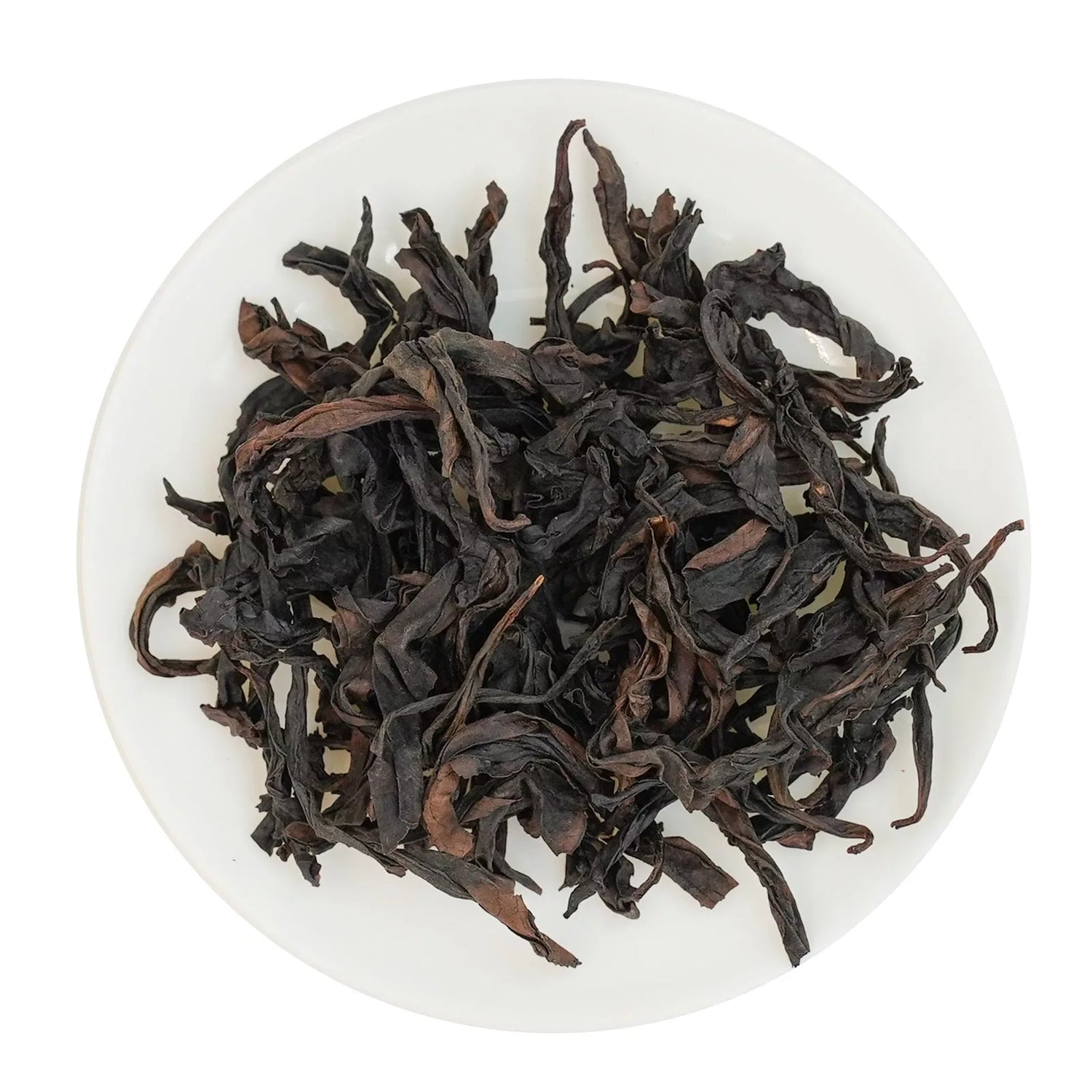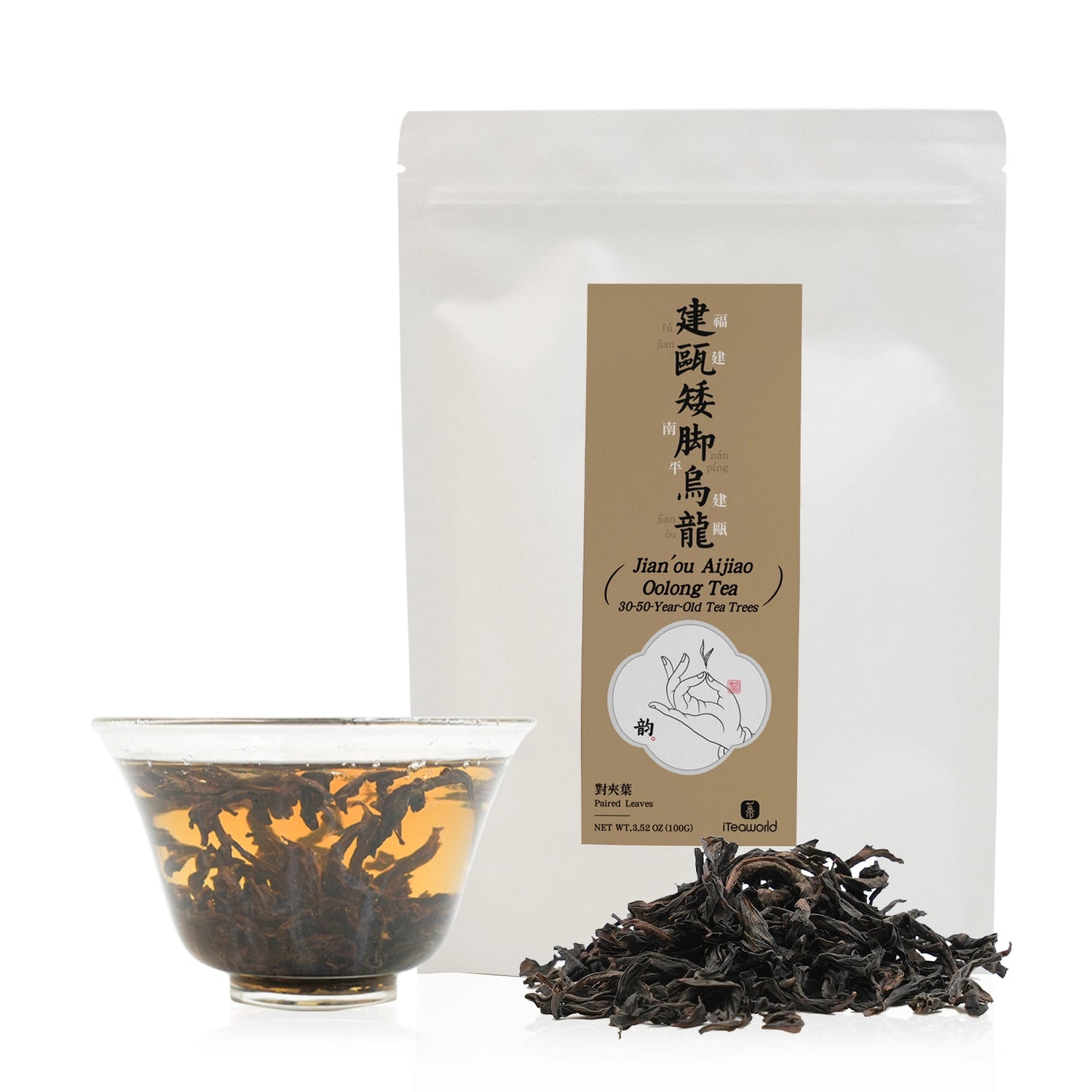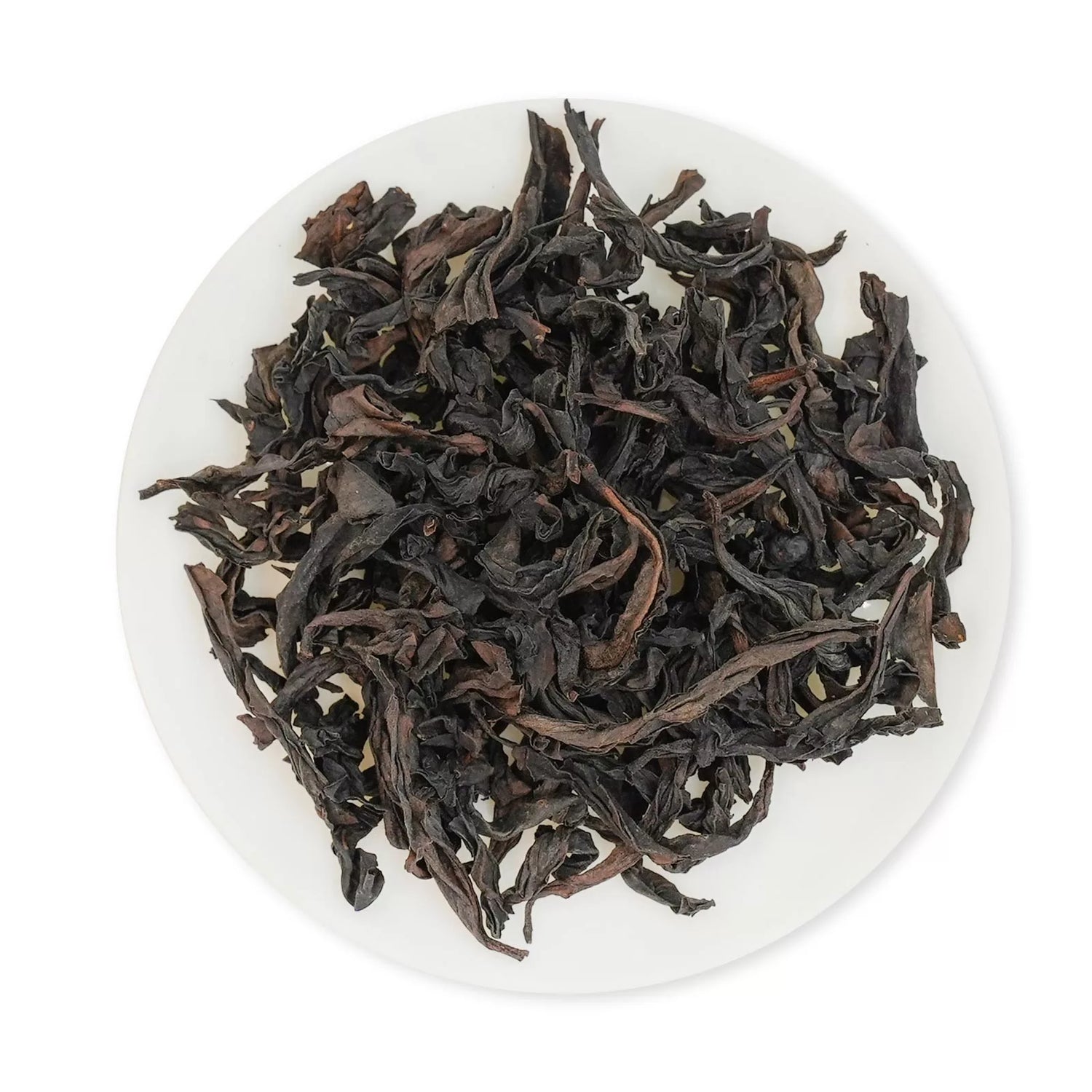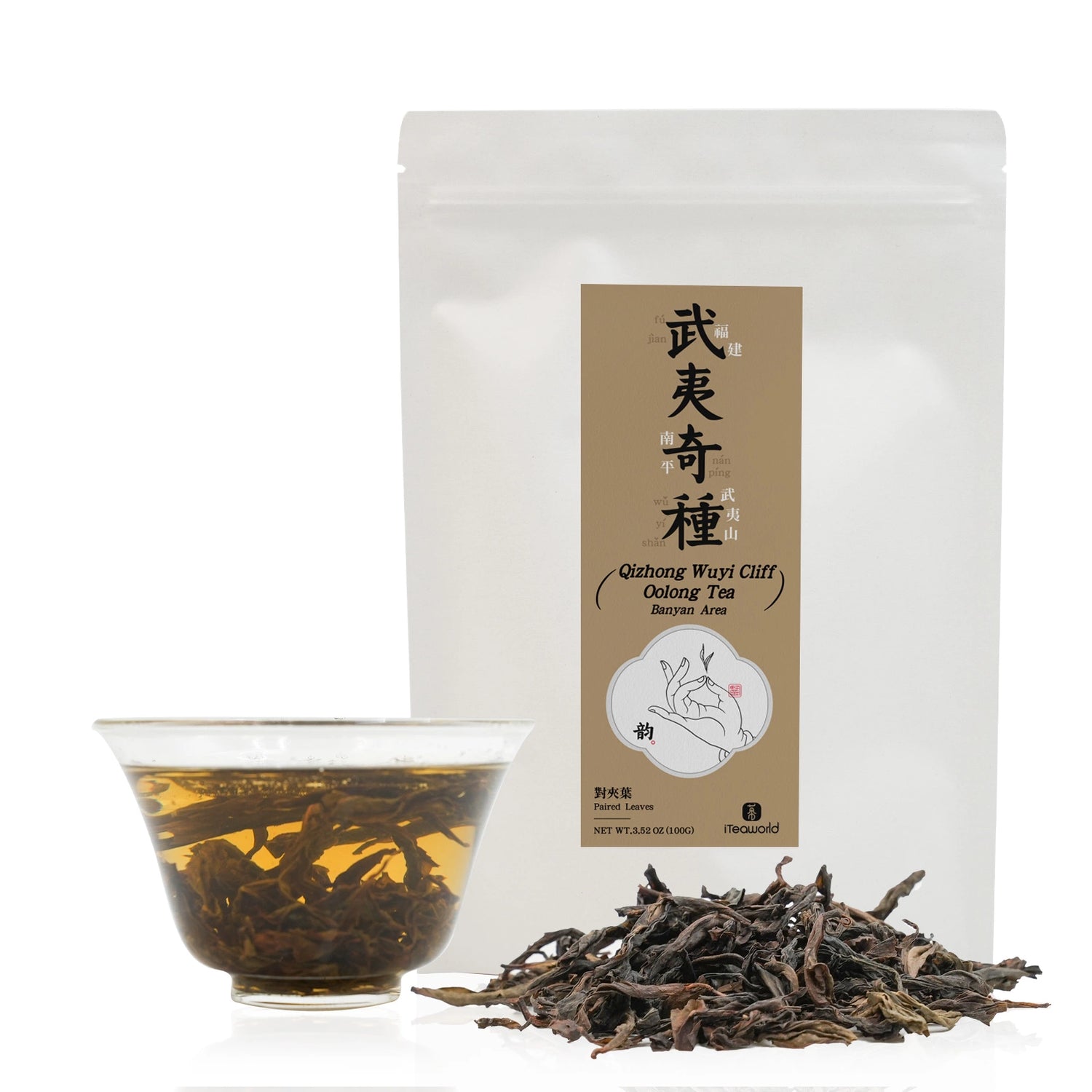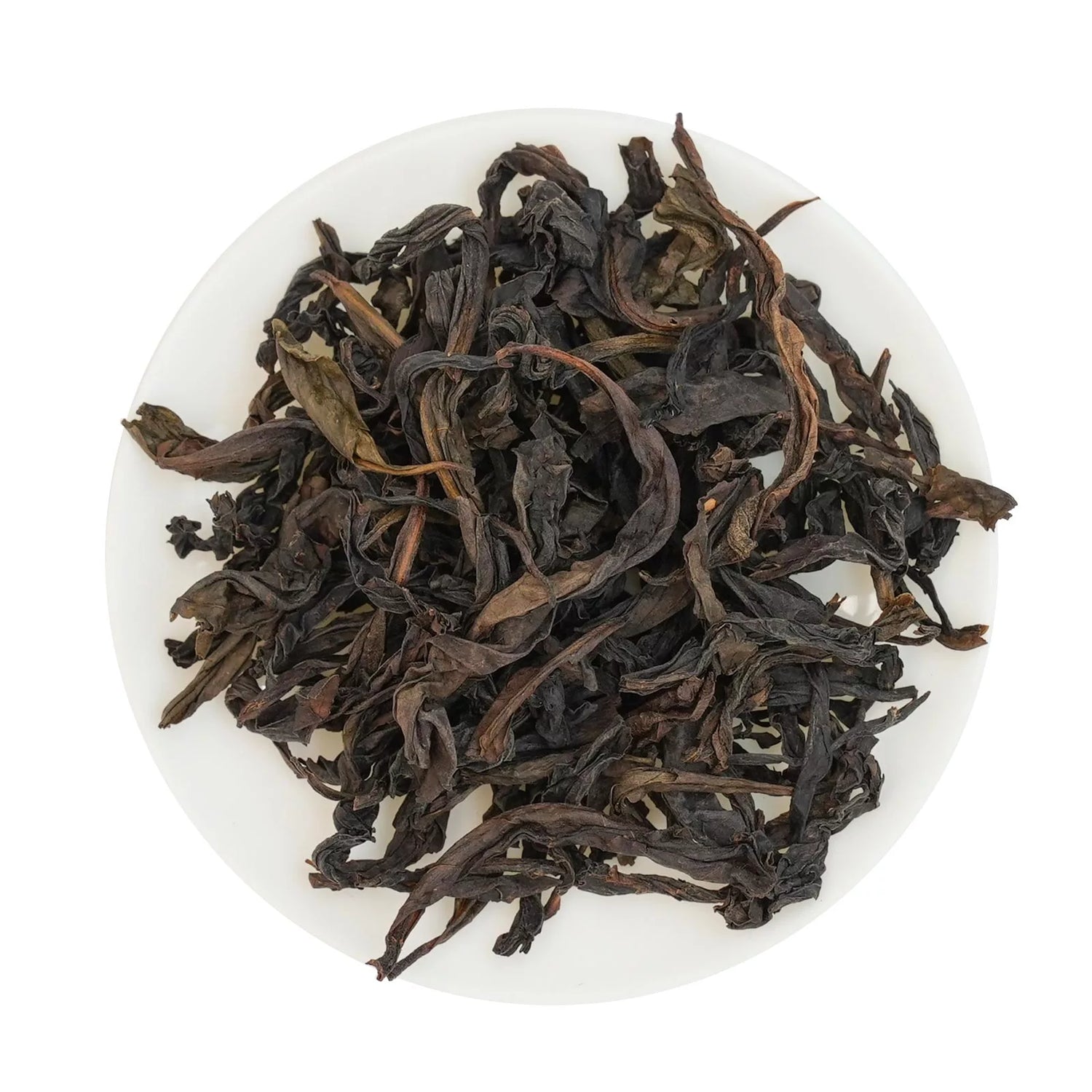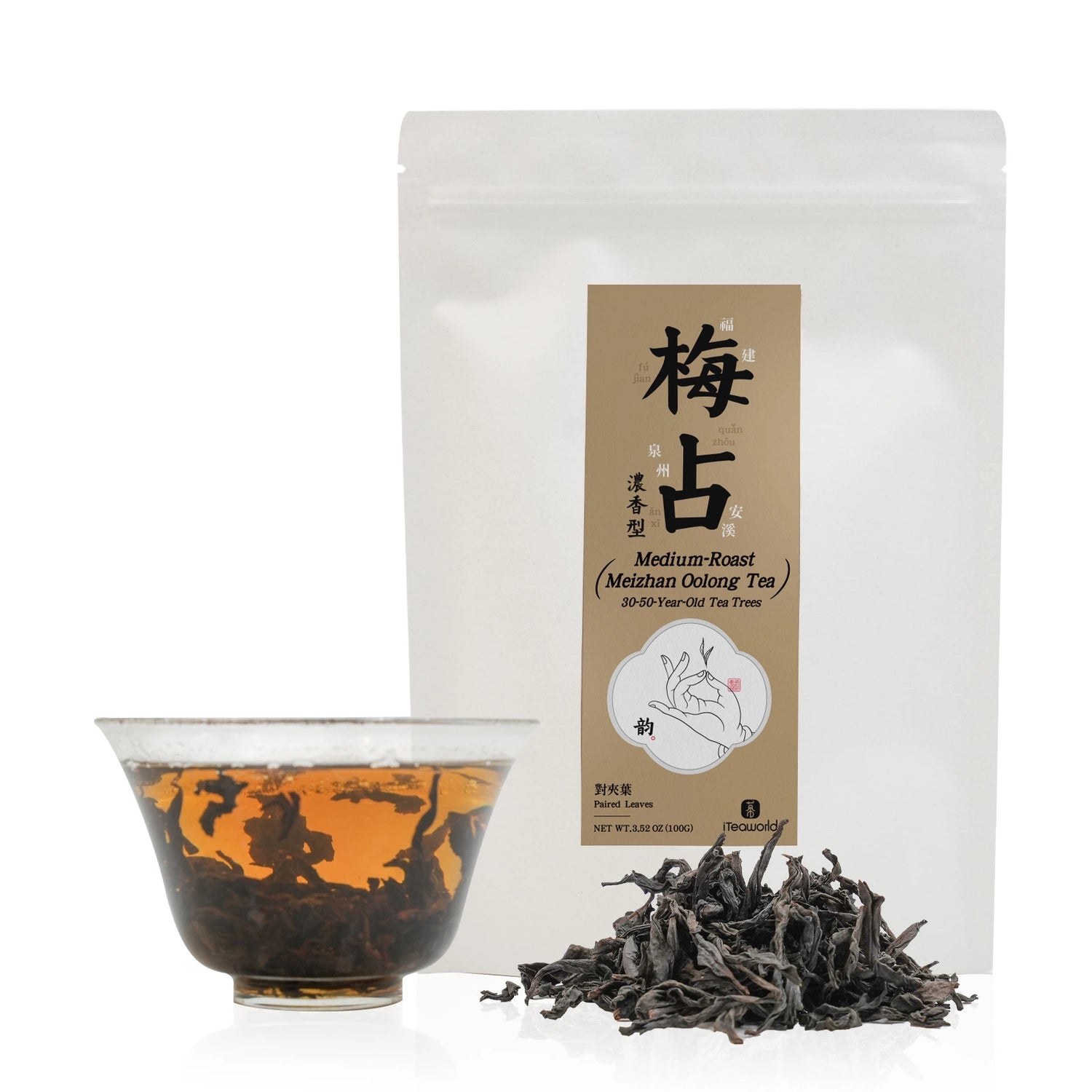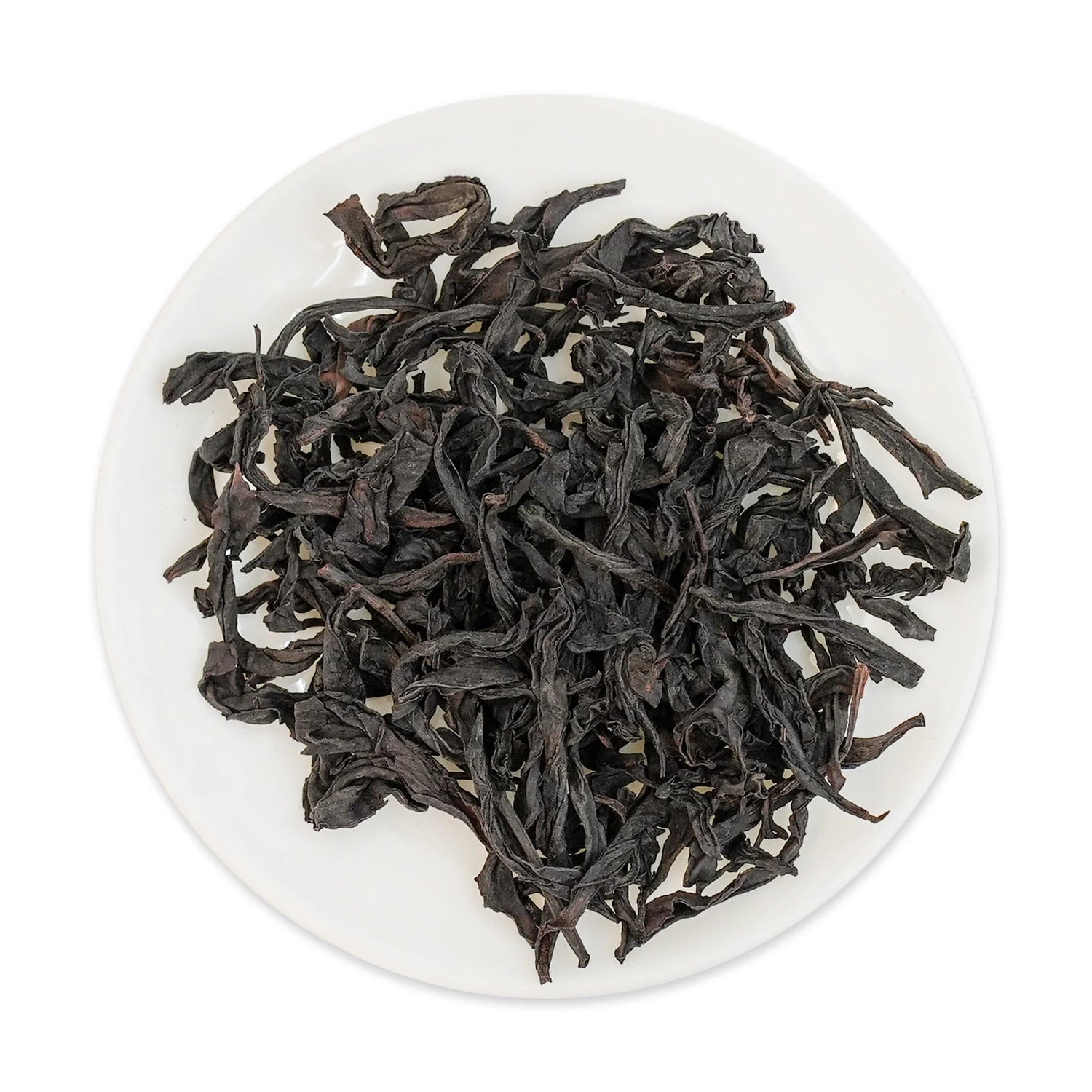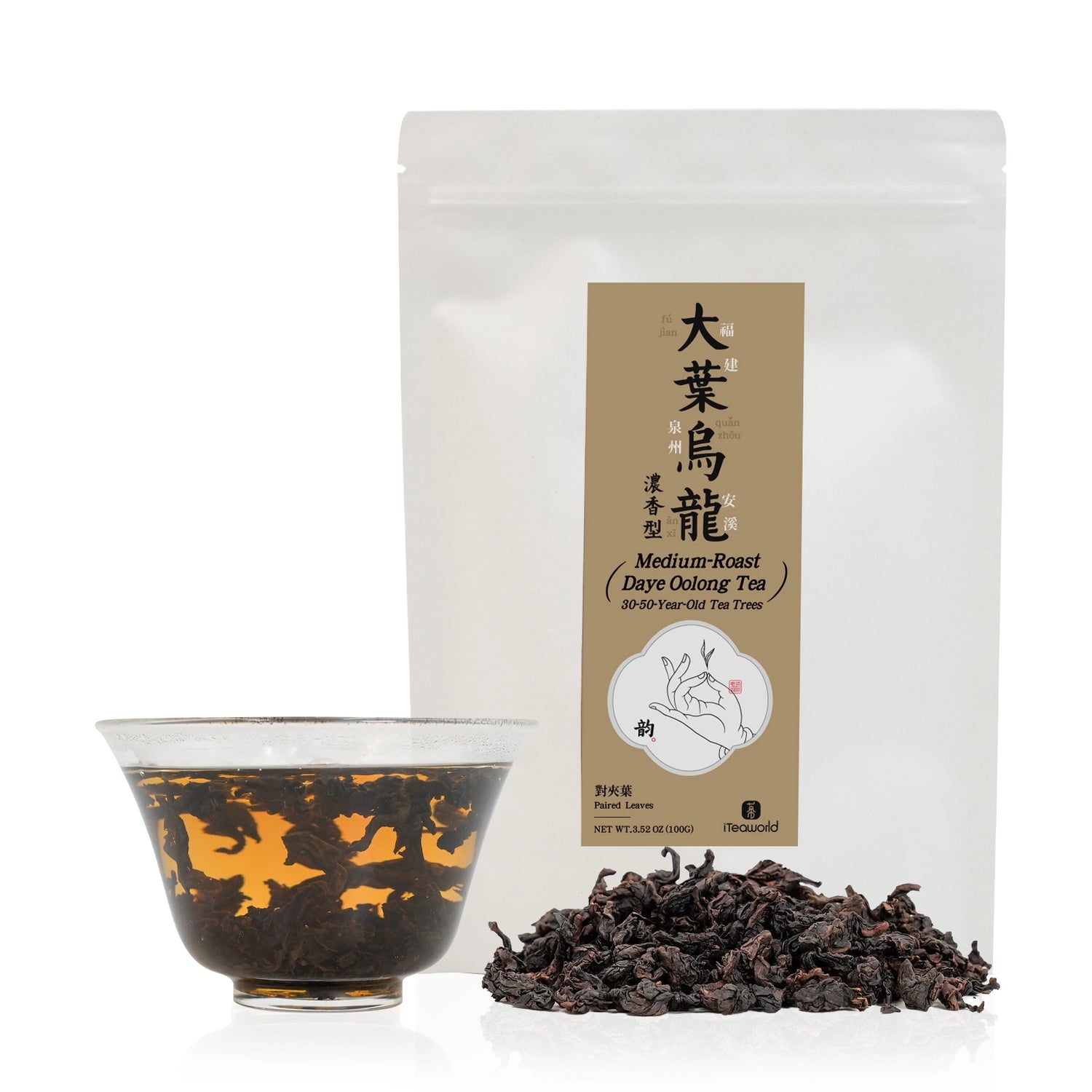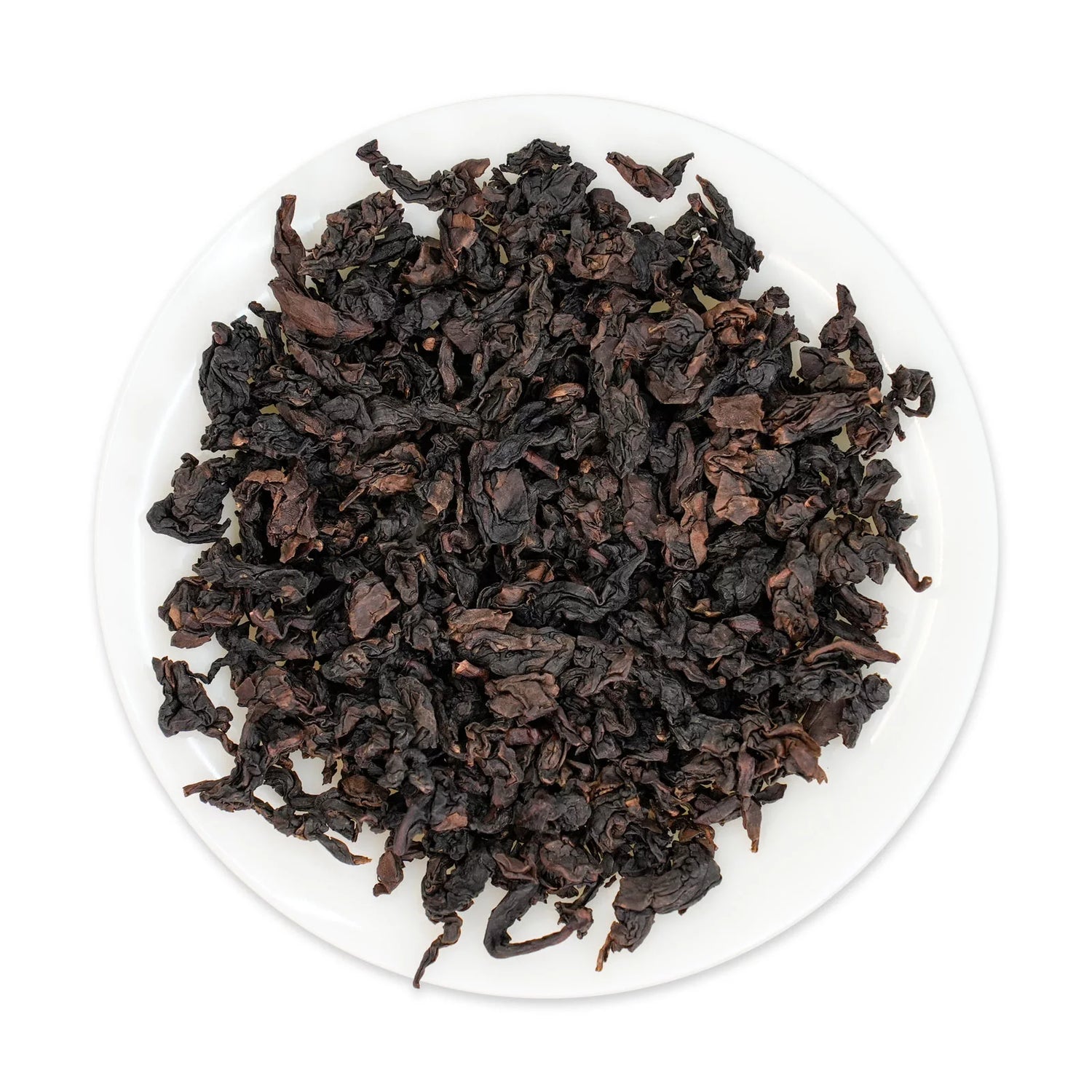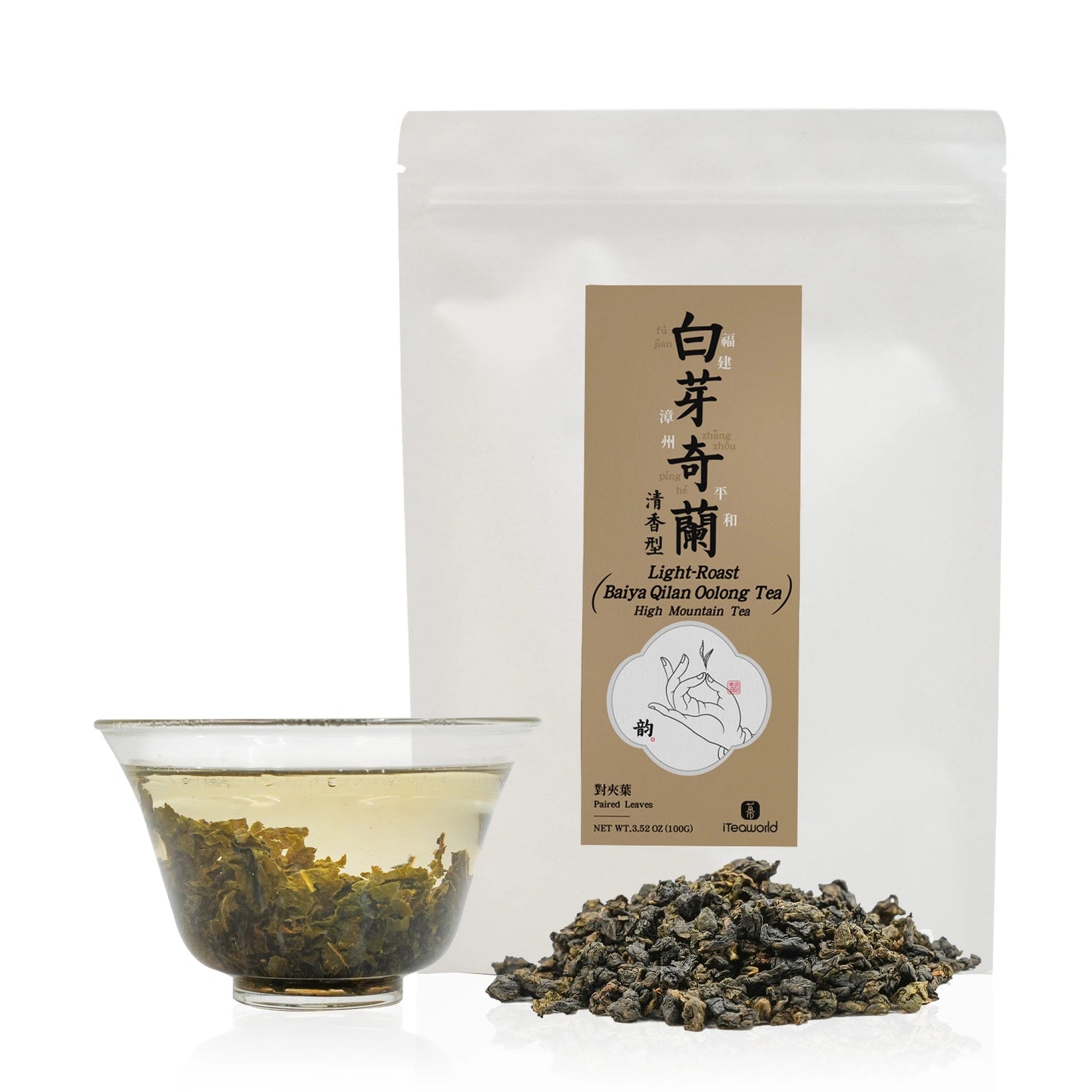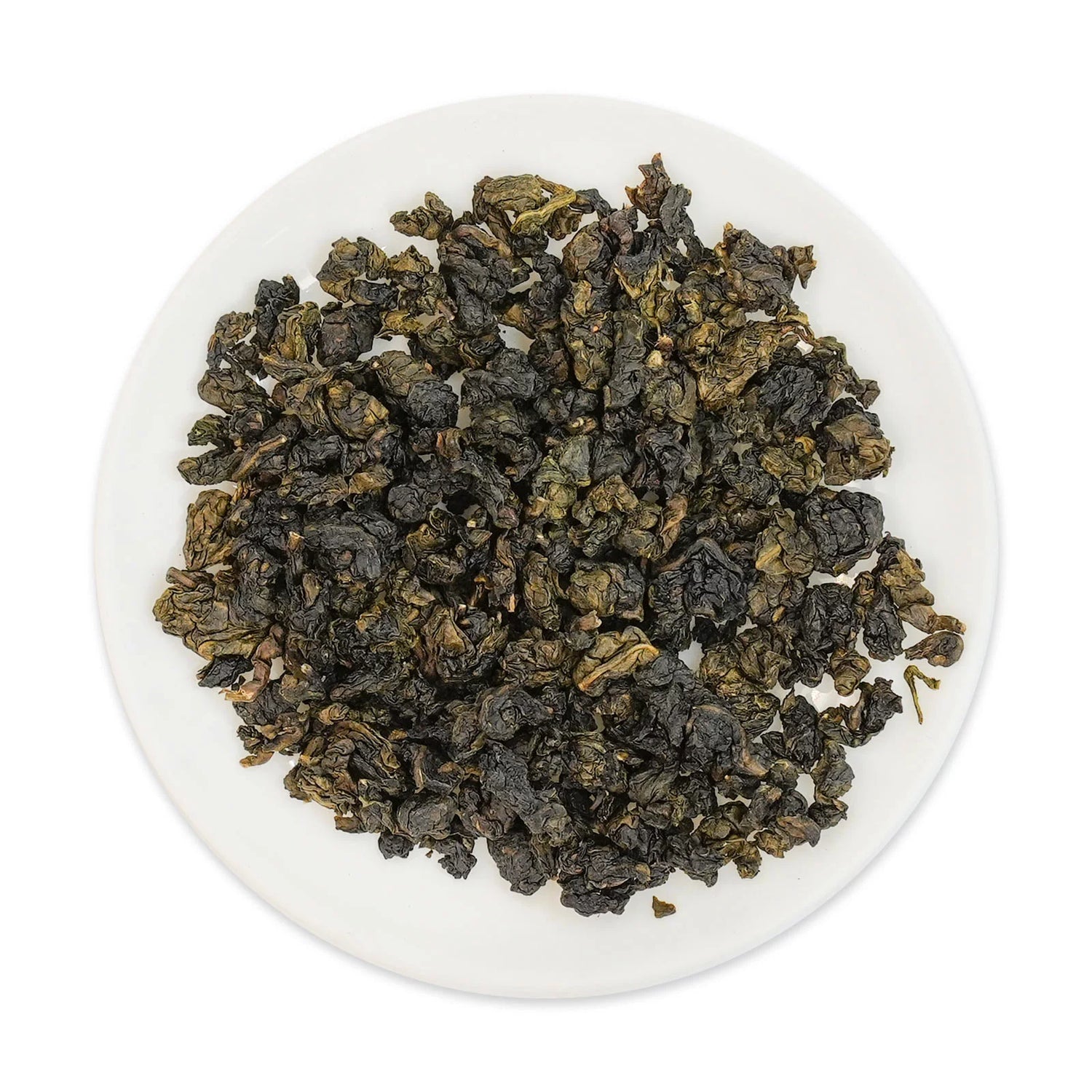Sort by:
204 products
204 products
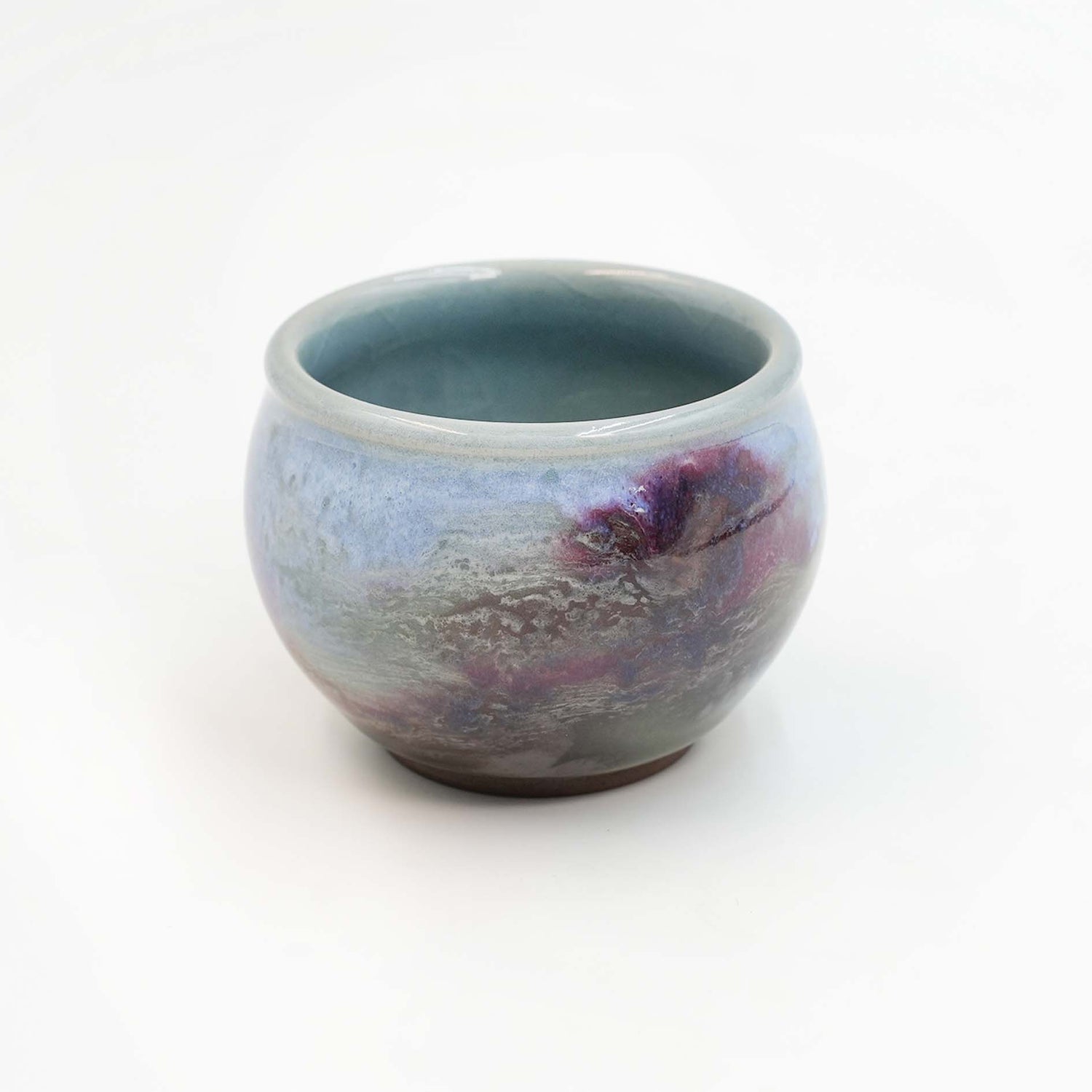

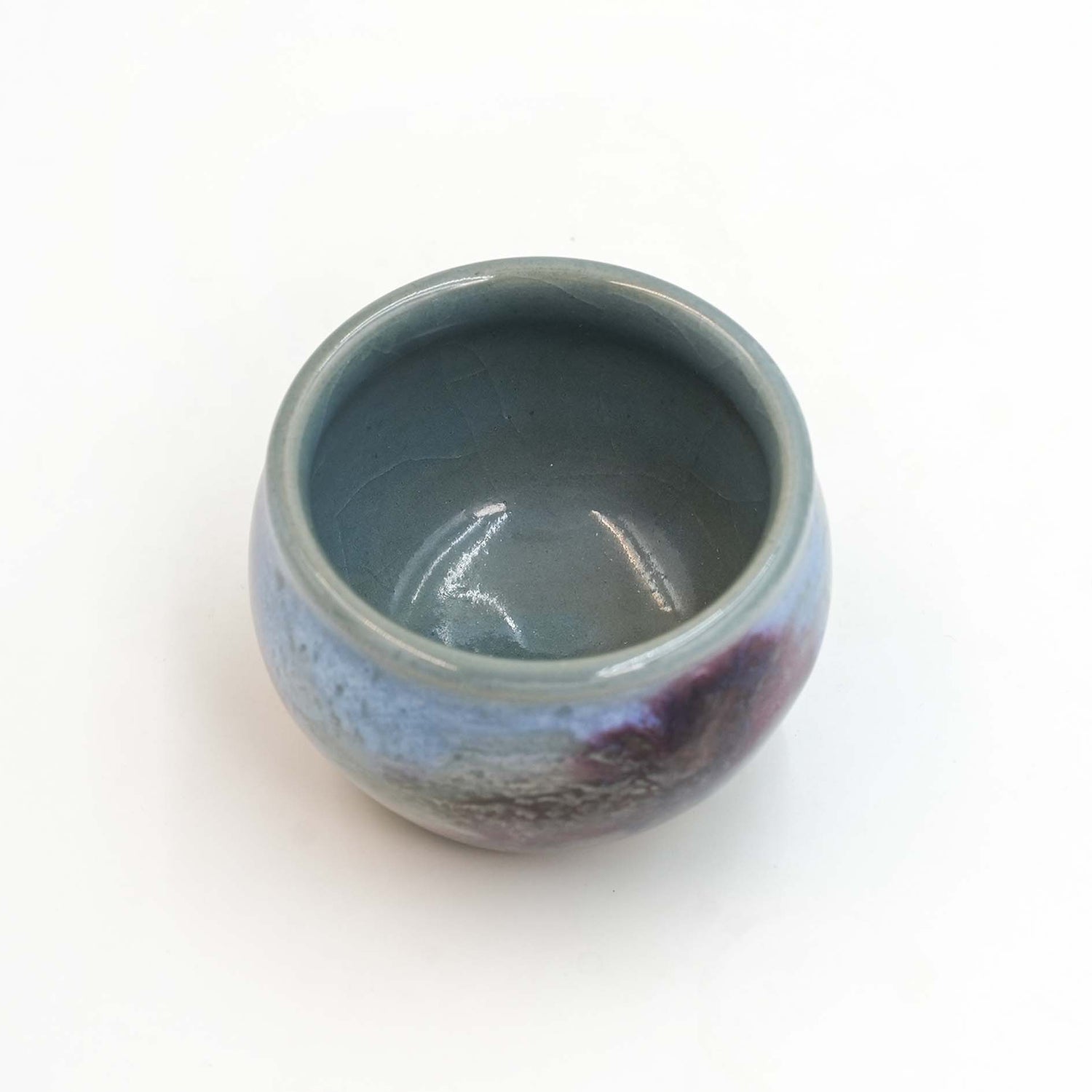
【 One of a Kind】Jun ware tea cup - kiln-changed glaze peach blossom master cup-50ml
【 One of a Kind】Jun ware tea cup - kiln-changed glaze peach blossom master cup-50ml
Product Description:
This "Peach Blossom Grove Series" Handmade Jun Ware Cup by Houshan Yeren pays homage to Tang Bohu (唐伯虎), the Ming Dynasty polymath renowned for maintaining artistic freedom amidst life's turbulence. The lush floral glaze patterns evoke a blooming peach blossom forest, transporting users to the poetic ambiance of Tang's legendary Peach Blossom Hermitage. Includes Master Chen Kuifeng's handwritten signature and collector's certificate in the gift box.
Note: Each piece is handmade. The glaze result is unpredictable, ensuring no two pieces are exactly alike.
Key Information:
Artisan: Chen Kuifeng (陈奎峰)
Dimensions: Width 7cm × Height 6cm
Capacity: 50ml
Weight: 179g
Jun Ware:
Jun ware is a rare Chinese ceramic art, once reserved for emperors. Its magic lies in kiln transmutation—each piece develops unique, unpredictable shades of blue, purple, and red during high-temperature firing. No two are ever alike, making every piece a one-of-a-kind masterpiece of fire and craftsmanship.
Recommended purchase:
For tea lovers: a handcrafted teaware that elevates the tea drinking experience.
For art collectors: a unique masterpiece that will never be replicated.
For interior design: an upgrade to any modern or classic space.
Artisan Profile:
Kuifeng Chen, born in 1981 in Yuzhou, Henan, is a distinguished figure in contemporary Jun porcelain. Known by the self-styled name “Houshan Wildman,” he is a recognized inheritor of Yuzhou’s intangible cultural heritage and the founder & artistic director of Zhenyu Jun Kiln Co., Ltd. His deep artistic expertise and spirit of innovation have allowed him to merge traditional Jun porcelain craftsmanship with modern aesthetics, making him a key force in preserving and advancing Jun porcelain culture.
Chen’s works have received numerous prestigious awards, including the China Arts and Crafts "Hundred Flowers Award" and the Henan Jun Porcelain Kiln Transmutation Art Competition Gold Award. Many of his pieces have been collected by institutions such as the National Museum of China.
Actively engaged in the industry, he serves as the Deputy Secretary-General of the China Jun Porcelain Culture Exchange Center and a member of the Henan Arts and Crafts Association. Through his efforts in cultural exchange, he plays a crucial role in promoting Jun porcelain on the international stage.
Product Overview:
Our tea bags are made from a high-quality corn fiber material, crafted from natural corn starch. This eco-friendly material is biodegradable and fully compostable, so it’s not only safe but also better for the environment. The bags are tasteless, odor-free, and transparent, giving you a clear view of the tea inside. It's a premium, sustainable option for tea lovers.
The tea bags passed the ILAC-MRA certification, meeting international food material safety standards.
Test report number: 2413403176
Key Features:
Number of tea bags: 100 pcs
String length: 17 cm
Folded tea bag design – no need for sealing machines
Tea bag size: 7 cm x 7 cm
Holds up to 5 grams of dry tea
How to tell if your tea bag is made from corn fiber or nylon plastic:
Here’s a simple fire test to distinguish between corn fiber (PLA) and nylon plastic:
Corn Fiber (PLA)
Smoke color: White or light gray
Smell: Slightly sweet or caramel-like, similar to burnt plant fibers or corn syrup
Afterburn: Leaves almost no residue, just fine ash
Nylon Plastic
Smoke color: Dark gray or black
Smell: Strong, unpleasant plastic odor, like burning chemicals
Afterburn: Melts into hard plastic beads
This Pu-erh tea comes from Bulang Mountain, the core production area of Pu-erh tea. The region enjoys abundant rainfall and ample sunlight, creating ideal natural conditions for tea growth. Bulang Mountain is home to several renowned tea-producing villages, such as Lao Banzhang, Lao Man’e, and Xin Banzhang. Teas from these areas are famous for their powerful “cha qi” (tea energy), long-lasting sweetness, and strong wild mountain character, making them true classics among Pu-erh teas.
This raw Pu-erh tea was produced in the year 2000, made from a blend of leaves harvested from old tea trees and pressed into a column shape. It has been carefully stored in a dry warehouse for 25 years, allowing for slow and natural aging. The resulting tea liquor reveals distinct smoky and aged aromas, with a rich, mellow body and a lingering sweet aftertaste.
Origin: Bulang Mountain, Menghai County, Xishuangbanna Dai Autonomous Prefecture, Yunnan Province
Production Date: 2000
Tea Cultivar: Yunnan Large-Leaf Tea
- Four types of packaging are randomly dispatched.
- During the aging and transportation process of aged tea, the packaging and the tea itself may get damaged. Please be cautious when purchasing if you mind this.
Recommended Purchase
This aged Jasmine Tea is a rare and exquisite tea that has been naturally stored for over 30 years, making it a true collector’s item. Crafted by the renowned Fuqing Dongge Overseas Chinese Tea Factory in the early 1990s, this tea has undergone decades of natural aging, enhancing its depth of flavor and smoothness. Unlike freshly scented jasmine tea, this aged version offers a more mellow and rich taste with a deep, lingering floral fragrance. It has completely transformed over time, developing a soothing and slightly honeyed undertone while retaining its signature jasmine aroma. This tea is no longer in circulation on the market, making it a unique find for tea connoisseurs and collectors.
Key Details about Jasmine Tea
- Origin: Fuqing, Fujian, China
- Production Date: Early 1990s
- Grade: Third Grade
- Tea Cultivar: Green tea buds
- Craftsmanship: Aged naturally over decades, originally scented with jasmine flowers
- Flavor Highlights: Aged floral aroma, mellow and smooth taste, slightly honeyed aftertaste
- Storage: Stored in a dry, cool environment in the northwest warehouse
What is Aged Jasmine Tea?
Aged Jasmine Tea is a unique category of jasmine tea that has been carefully stored for decades, allowing its flavors to develop and mature over time. While fresh jasmine tea is prized for its bright floral notes, aged jasmine tea offers a deeper, smoother taste with a richer texture. The aging process enhances the tea’s complexity, reducing any bitterness and infusing it with subtle honeyed sweetness. This type of tea is rare due to its long storage period and the fact that it is no longer in active production, making it highly sought after by tea collectors and enthusiasts.
Recommended Brewing Methods
-
Gaiwan Brewing
- 100ml Gaiwan
- 95℃-100℃
- 4-6 times
- 1:15 to 1:20
- 15-20 seconds
-
Thermos Brewing
- 1g tea per 100ml (3.4oz) water
- Use water at 95℃
- Steeping Time: 1-2 hours
- Tool: Insulated thermos
Storage Guidelines
Store in a cool, dry place, away from light, moisture, and strong odors. Proper storage will help preserve the delicate fragrance and flavor of the jasmine tea.
Weight & Packaging
- Net Weight: 50g (1.76oz)
- Packing Type: Original paper box sealed packaging
About Fuqing Dongge Overseas Chinese Tea Factory
The Fuqing Dongge Overseas Chinese Tea Factory, established in 1963, is a renowned producer of high-quality teas, specializing in jasmine-scented teas. Located in Fuqing, Fujian, an area rich in tea cultivation, the factory has been dedicated to preserving traditional tea-making methods while ensuring the highest standards of craftsmanship. With decades of experience, Fuqing Dongge has become a trusted name in the tea industry, especially known for its aromatic jasmine tea, which has gained popularity both domestically and internationally. The aged Jasmine Tea from this factory is a testament to their commitment to excellence and the beauty of time-enhanced tea.
During the aging and transportation process of aged tea, the packaging and the tea itself may get damaged. Please be cautious when purchasing if you mind this.
Recommended Purchase
This 1998 Yunnan Pu-erh Tea Brick is a remarkable product crafted by the renowned Macao Hualian Tea Company. The tea brick was custom-produced by the Menghai Tea Factory, utilizing premium Yunnan large-leaf tea leaves. After 29 years of natural dry storage in Dongguan, the tea has developed a rich camphor and aged aroma, with a mellow, sweet, and smooth taste. The brick's appearance is flat with distinct edges and corners, uniform thickness, and a dark brown color. The liquor presents a bright orange-yellow hue with some sediment. This tea is an excellent choice for Pu-erh enthusiasts and collectors seeking a well-aged, high-quality tea with historical significance.
Key Details about 1998 Yunnan Pu-erh Tea Brick
- Origin: Yunnan Province, China
- Production Date: 1998
- Grade: Second Grade
- Tea Cultivar: Yunnan Large-Leaf Tea
- Craftsmanship: Custom-produced by Menghai Tea Factory for Macao Hualian Tea Company; traditional processing and compression techniques
- Flavor Highlights: Pronounced camphor and aged aroma; mellow, sweet, and smooth taste
- Storage: Naturally stored in Dongguan dry warehouse; well-preserved without musty odors
What is Yunnan Pu-erh Tea Brick?
Yunnan Pu-erh Tea Brick is a type of compressed tea made from Yunnan large-leaf tea varieties. The tea undergoes a oxidation process, during which it is steamed and pressed into brick shapes for aging. Over time, the tea develops complex flavors and aromas, becoming smoother and more mellow. Pu-erh tea bricks are highly valued for their aging potential and are often sought after by collectors and tea enthusiasts.
About Macao Hualian Tea Company
Macao Hualian Tea Company, established in 1965 by Mr. Zeng Zhihui and four patriotic overseas Chinese partners, has played a pivotal role in the tea industry. The name "Hualian" signifies the unity of overseas Chinese in business. During the 1960s to 1980s, the company collaborated closely with the Guangdong Tea Import and Export Corporation, serving as a crucial channel for exporting Chinese tea to international markets. Notably, Hualian held the exclusive rights as the sole distributor for the China Tea Import and Export Company in Macau, commanding over 90% of the local market share. Their Pu-erh tea bricks, especially those produced in partnership with the Menghai Tea Factory, are esteemed for their quality and have become coveted items among tea collectors.
Recommended Brewing Methods
-
Gaiwan Brewing
- 100ml Gaiwan
- 95℃-100℃
- 5-7 times
- 1:15 to 1:25
- 10~20 seconds
-
Thermos Brewing
- 1g tea per 100ml (3.4oz) water
- Use boiling water (212°F)
- Steeping Time: 1-2 hours
- Tool: Insulated thermos
-
Boiling Method
- Add 1g tea per 100ml (3.4oz) water
- Boil for 1-2 minutes, then let sit for 2-3 minutes
- Rebrew by boiling 3 minutes longer with each steeping
- Use a ceramic or glass teapot for optimal flavor
- Enjoy up to 3-4 brews
Storage Guidelines
Store this tea in a dry, cool environment with a humidity level below 45% and temperature below 25°C (77°F). Keep it away from strong odors, light, and air exposure. Proper storage ensures the tea retains its flavor and continues to age gracefully over time.
Weight & Packaging
- Net Weight: 250g
- Packing Type: Paper-wrapped
During the aging and transportation process of aged tea, the packaging and the tea itself may get damaged. Please be cautious when purchasing if you mind this.
Recommended Purchase
This Yongchun Fo Shou Oolong tea, produced in 1993 and naturally aged in dry storage for 33 years, is made from the Yongchun Fo Shou variety, a well-known tea type from Yongchun, Fujian Province. It was crafted by the Yongchun Beikong Overseas Chinese Tea Factory, established in 1917. This tea is handcrafted with traditional full-heat roasting and comes in its original packaging. No longer available on the market, it features a unique "aged aroma", rich sweetness and smooth texture, making it a cherished choice for lovers of aged Oolong tea.
Key Details about 1993 Yongchun Fo Shou
- Origin: Yongchun, Fujian Province, China
- Production Date : 1993
- Grade: Special Grade
- Tea Cultivar: Yongchun Fo Shou
- Craftsmanship : Traditional high-fire roasting with medium fermentation, followed by 33 years of natural dry storage in sealed outer box with an inner foil bag.
- Flavor Highlights: Warm "aged aroma" with notes of roasted nuts, complex layers of aged flavors.
What is Yongchun Fo Shou Oolong Tea?
Yongchun Fo Shou, also known as "Buddha’s Hand," is a premium variety of oolong tea grown in Yongchun, Fujian. Named after its leaves that resemble a Buddha’s hand, Yongchun Fo Shou is celebrated for its fragrant aroma, smooth taste, and exceptional aging potential. The tea is lightly twisted into a "dragonfly head" shape, with dark blackish-brown leaves indicative of traditional craftsmanship.
Brewing and Enjoyment Tips
This tea is a testament to the transformative effects of time, offering a rich, smooth, and slightly tangy flavor profile. Best enjoyed with long steeping times or simmering to fully release its aged characteristics.
Recommended Brewing Methods:
-
Gaiwan Brewing:
- 100ml Gaiwan
- 95℃-100℃
- 5-7 times
- 1:15 to 1:25
- 10~20 seconds
-
Thermos Brewing:
- 1g tea per 100ml (3.4oz) water.
- Use boiling water (212°F).
- Steeping Time: 1-2 hours.
- Tool: Insulated thermos.
-
Boiling Method:
- Add 1g tea per 100ml (3.4oz) water.
- Boil for 1-2 minutes, then let sit for 2-3 minutes.
- Rebrew by boiling 3 minutes longer with each steeping.
- Use a ceramic or glass teapot for optimal flavor.
- Enjoy up to 3-4 brews.
Storage Guidelines
Store this tea in a dry, cool environment with a humidity level below 45% and temperature below 25°C (77°F). Keep it away from strong odors, light, and air exposure. Proper storage ensures the tea retains its flavor and continues to age gracefully over time.
Weight
- 4.4oz (125g)
- Packing Type : Sealed Paper Box with Internal Foil Bag
About Yongchun Beikeng Overseas Chinese Tea Factory
Founded in 1917, the Yongchun Beikeng Tea Factory has a rich history of producing high-quality teas. Once a bustling hub of innovation and craftsmanship, the factory was home to over 1,000 tea workers at its peak, producing millions of pounds of tea annually. Its products, including Yongchun Fo Shou, were highly sought after in Hong Kong, Taiwan, Japan, and Southeast Asia.
Just as many state-owned old factories have experienced ups and downs, in the 1990s, the tea factory once fell into a slump, and the once bustling factory area gradually became desolate. The former factory director, Huang Shenghou, who had created its greatest glory and witnessed its decline, was deeply saddened by its decline and took over the factory himself after privatization.
Today, this aged Yongchun Fo Shou tea stands as a flavorful tribute to the factory's storied past and the enduring legacy of traditional Chinese tea-making.


Lantern Tea Bag for Gongfu Tea (Fits 1 Teapot + Multiple Teacups)
Lantern Tea Bag for Gongfu Tea (Fits 1 Teapot + Multiple Teacups)
These teacup and teapot bag sets are specially designed to protect your teaware. Each bag is lined with soft padding that provides full cushioning and protection for teapots and cups, preventing damage from accidental bumps during handling or storage.
The sets can easily store a complete compact tea set (teapot and cups), with separate compartments for each piece to keep them secure and organized.
Available in multiple designs, these teaware bags are perfect for both home storage and travel, offering reliable protection for your favorite teapot or teacup wherever you go.
Sizes:
Round base diameter 15 cm × height 11.5 cm
*All sizes are measured by hand, and a margin of error of ±1 cm may occur.


Teapot & Cup Travel Bag – Portable Teaware Case for Gongfu Tea, Fits 1 Teapot/Gaiwan + 2 Teacups
Teapot & Cup Travel Bag – Portable Teaware Case for Gongfu Tea, Fits 1 Teapot/Gaiwan + 2 Teacups
These teacup and teapot bag sets are specially designed to protect your teaware. Each bag is lined with soft padding that provides full cushioning and protection for teapots and cups, preventing damage from accidental bumps during handling or storage.
The sets can easily store a complete compact tea set (teapot and cups), with separate compartments for each piece to keep them secure and organized.
Available in multiple designs, these teaware bags are perfect for both home storage and travel, offering reliable protection for your favorite teapot or teacup wherever you go.
Sizes:
17 cm (L) × 13 cm (W) × 10.5 cm (H)
*All sizes are measured by hand, and a margin of error of ±1 cm may occur.


Abstract Landscape Fabric Teapot & Teacup Bag Set (3 Pieces) — Padded Travel Teaware Storage Case
Abstract Landscape Fabric Teapot & Teacup Bag Set (3 Pieces) — Padded Travel Teaware Storage Case
These teacup and teapot bag sets are specially designed to protect your teaware. Each bag is lined with soft padding that provides full cushioning and protection for teapots and cups, preventing damage from accidental bumps during handling or storage.
The sets can easily store a complete compact tea set (teapot and cups), with separate compartments for each piece to keep them secure and organized.
Available in multiple designs, these teaware bags are perfect for both home storage and travel, offering reliable protection for your favorite teapot or teacup wherever you go.
Sizes:
Teapot & Cup Bag Set (Abstract Landscape):
Large: 10 cm (L) × 10 cm (W) × 10 cm (H)
Medium: 9 cm (L) × 9 cm (W) × 9 cm (H)
Small: 7 cm (L) × 7 cm (W) × 7 cm (H)
*All sizes are measured by hand, and a margin of error of ±1 cm may occur.
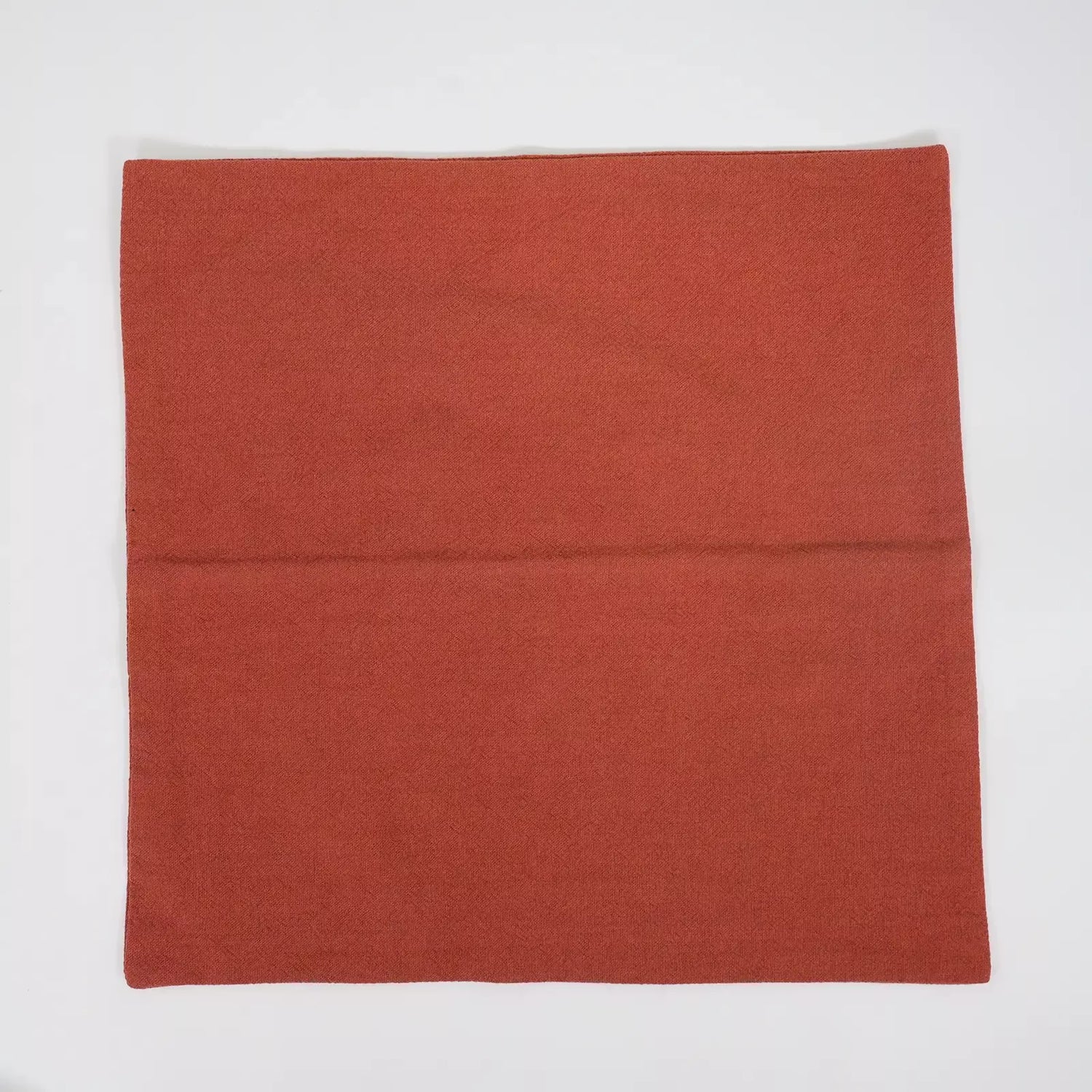
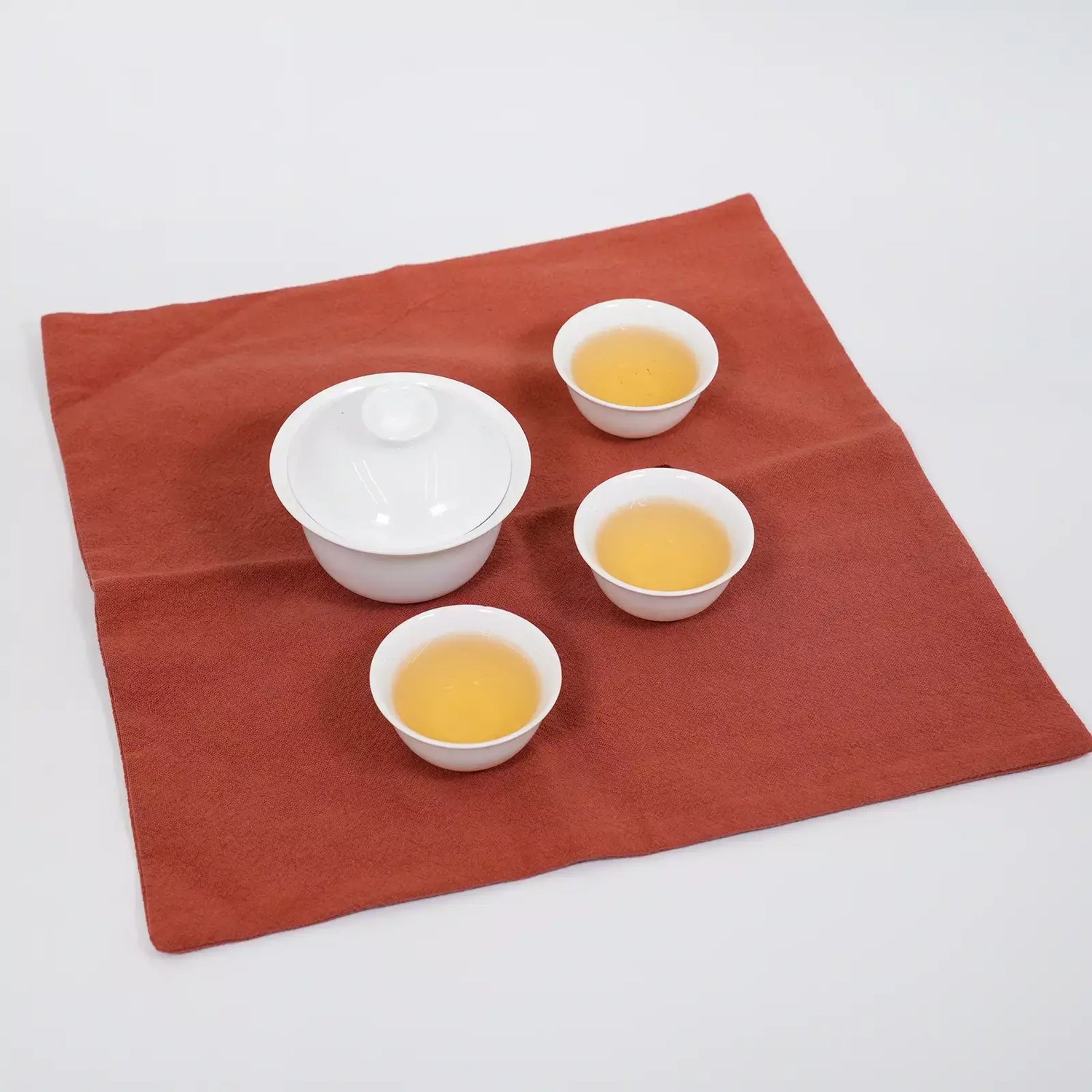
Tea Towel for Gongfu Tea Ceremony – Soft Cloth for Teapot and Teacup Cleaning
Tea Towel for Gongfu Tea Ceremony – Soft Cloth for Teapot and Teacup Cleaning
The tea towel, usually square or rectangular, is an important cleaning tool during tea preparation. It’s used to wipe the teapot, teacups, or any water stains on the tea mat, keeping the tea space neat and graceful.
Sizes:
Solid Color Tea Towel:
Square: 28 × 28 cm
Rectangular: 38 × 11 cm
*All sizes are measured by hand, and a margin of error of ±1 cm may occur.
Wuyi Rock Tea
Curious about Wuyi Rock Tea but not ready to commit to a full pack? Our mini sample packs are the perfect way to explore.
Each sample contains enough tea for one session. Choose from 16 unique varieties.
Whether you’re new to Chinese tea or seeking a rare flavor to add to your collection, these mini packs make tasting simple and enjoyable.
Bai Ji Guan is one of the rarest and most refined Wuyi rock teas, with a deep connection to Taoist culture. Legend has it that Bai Yuchan, a famous Taoist master of the Song Dynasty, discovered and cultivated this unique tea. Unlike most rock teas, its leaves are pale green with serrated edges resembling a rooster’s comb—hence the name "Bai Ji Guan" (White Rooster Crest).
This tea is lightly roasted, allowing its delicate floral and herbal notes to shine. Expect a fragrance reminiscent of orchids, sweet corn silk, and a hint of bamboo leaves in the cooled cup. When brewed, it produces a crystal-clear, pale yellow liquor with a fresh, sweet, and layered aroma that evolves with each infusion. Its taste is smooth and refreshing, similar to Shuixian but with a more refined, unfolding floral character. In the world of rock teas, Bai Ji Guan stands as the refined scholar—graceful, complex, and deeply intriguing.
Origin: Jingshui Village, Xingcun Town, Wuyishan City, Fujian Province, China
Category: Ban Yan (mid-mountain, 400–600 m)
Soil: Gravel soil
Variety: Bai Ji Guan
Producer: Chen Hui
Harvest Time: November 2024
Shelf Life: 36 months
Brewing Guide
-
Water Temperature: 100°C (212°F)
-
Brewware: Gaiwan, Yixing clay teapot
-
Tea-to-Water Ratio: 5–7 g per 100 ml
-
1st–3rd Infusions: 8–15 seconds
-
Later Infusions: Add 5–10 seconds each time
One of Wuyi Mountain's four most famous teas, Shui Jin Gui gets its name from the way its tea bushes look like giant golden turtles basking in the sun. These rare plants grow on the steep cliffs of Ox Pen Ravine beneath Dugeshe Peak.
This tea strikes the perfect balance - gentle yet complex, without the overpowering intensity of other rock teas. Its signature winter plum blossom fragrance is hauntingly beautiful, like plum flowers blooming through snow. The flavor is naturally sweet and smooth, with zero bitterness even when brewed strong.
Tea lovers appreciate its sophisticated yet approachable nature, making it perfect for both connoisseurs and those new to Wuyi oolongs.
Origin: Jingshui Village, Xingcun Town, Wuyishan City, Fujian Province, China
Category: Ban Yan (mid-mountain, 400–600 m)
Soil: Gravel soil
Variety: Shui Jin Gui
Producer: Chen Hui
Harvest Time: November 2024
Shelf Life: 36 months
Brewing Guide
-
Water Temperature: 100°C (212°F)
-
Brewware: Gaiwan, Yixing clay teapot
-
Tea-to-Water Ratio: 5–7 g per 100 ml
-
1st–3rd Infusions: 8–15 seconds
-
Later Infusions: Add 5–10 seconds each time
-
Total Brews: Up to 10 infusions
Dwarf Oolong, also known as Small Leaf Oolong or Soft Branch Oolong, originates from Dongfeng Town in Jian'ou City. It is the ancestral tea tree variety of the Beiyuan Tribute Tea, with a cultivation history tracing back to the Song Dynasty. During the Qing Dynasty, it was introduced to Taiwan and developed into the famous Qingxin Oolong and Dong Ding Oolong. Its unique flavor continues to be highly appreciated by local tea connoisseurs.
This tea comes from the original Dwarf Oolong plantations in Dongfeng Town. It offers a delicate, lingering aroma with distinctive notes of honey peach or osmanthus. The fragrance is long-lasting, the taste rich, mellow, and refreshing, with a clear golden liquor. Even after multiple infusions, both the aroma and color remain stable.
Origin:
Dongfeng Village, Dongfeng Town, Jian'ou City, Fujian Province, China
Elevation:
500–600 m
Soil Type:
Yellow Soil
Tea Variety:
Dwarf Oolong
Tea Master:
Ye Jiansheng
Harvest Season:
November 2024
Shelf Life:
36 months
Brewing Guidelines
Water Temp: 100°C (212°F)
Brewware: Gaiwan, Yixing Clay Teapot
Tea-to-Water Ratio: 5-7g per 100ml
1–3 infusions: 8-15 sec
Later infusions: Add 5–10 sec
Total brews: 8-10 times
Wuyi Qizhong, locally called "Cai Cha," refer to the indigenous tea tree varieties naturally growing in Wuyi Mountain. They are a sexually propagated group of plants and among the most ancient varieties in Wuyi. Famous Wuyi oolong teas such as Bai Jiguan and Tie Luo Han were selected from these rare varieties, making them the "gene pool" and a "living fossil" of Wuyi Rock Tea.
Due to the significant individual differences among these plants, the brewed tea presents diverse aromas, ranging from floral notes (orchid), fruity notes (honey peach, snow pear), woody notes, to creamy notes; older bushes may even carry a wild character.
This tea belongs to the Ban Yan (Half-Rock) category. It opens with a floral fragrance, develops fruity aromas, and carries a unique mineral character known as "Yan Yun" (rock rhyme). The taste is rich and full-bodied, with a smooth, lingering sweetness, pronounced throat finish, and strong durability for multiple infusions.
Origin: Jingshui Village, Xingcun Town, Wuyishan City, Fujian Province, China
Tea Region: Ban Yan (半岩)
Elevation: 400–600 m
Soil Type: Yellow Soil
Tea Variety: Wuyi Mountain indigenous group varieties
Tea Master: Chen Hui
Harvest Season: November 2024
Shelf Life: 36 months
Brewing Guidelines
Water Temp: 100°C (212°F)
Brewware: Gaiwan, Yixing Clay Teapot
Tea-to-Water Ratio: 5-7g per 100ml
1–3 infusions: 8-15 sec
Later infusions: Add 5–10 sec
Total brews: 7-8 times
Meizhan (Plum Fragrance Oolong)
Meizhan is a traditional oolong variety native to Anxi, first discovered in the early 19th century. It’s named for its signature plum blossom aroma and complex floral-fruity character. The leaves are thick and crisp, requiring gentle oxidation and careful handling during processing to preserve its elegant fragrance.
Our Meizhan comes from Chishui village in Xiping, Anxi—grown at 900 meters in a cool, misty climate ideal for this cultivar. The tea is traditionally medium-roasted, offering a perfect balance of fire and fragrance: notes of plum, orchid, and a touch of woodiness, with a soft, full-bodied finish.
A great choice for tea lovers who enjoy both floral and fruity complexity with a warming roasted undertone.
-
Origin: Chishui Village, Xiping Town, Anxi County, Fujian, China
-
Elevation: 900 meters
-
Tea Maker: Chen Jiangzhi
-
Harvest: 2025
-
Shelf Life: 36 months
-
Cultivar: Meizhan
-
Tree Age: 50 years
Daye Oolong
Daye Oolong, or "Big Leaf Oolong," is a lesser-known but classic cultivar from Anxi’s Changqing region. It has been grown for centuries, valued for its bold leaves, rich mouthfeel, and signature toasted aroma.
Our tea comes from Shanping village, considered the origin area for this cultivar, with tea gardens around 800 meters elevation. The high mountain environment and older tea trees bring out deeper notes of caramel, wood, and dried fruit. It’s naturally smooth and mellow, with a clean, lingering finish.
Daye Oolong is especially well-suited for those who like richer, deeper teas that are still easy to drink—perfect for both hot and cold brewing.
-
Origin: Shanping Village, Changqing Town, Anxi County, Fujian, China
-
Elevation: 800 meters
-
Tea Maker: Chen Jiangzhi
-
Harvest: 2025
-
Shelf Life: 36 months
-
Cultivar: Daye Oolong (Large-Leaf Oolong)
-
Tree Age: 40 years
Baiya Qilan
Baiya Qilan is a rare oolong variety native to Pinghe County, Fujian. First discovered during the Qing Dynasty, it’s named for its pale buds and strong orchid fragrance. It’s one of Fujian’s top five oolongs, beloved for its unique blend of floral aroma and natural honeyed sweetness.
Our tea is harvested from the high-elevation gardens of Daqin Mountain (around 1000 meters), where misty skies and selenium-rich soil help develop its rich aroma. Each cup offers bright orchid and pomelo notes, with a soft texture and a refreshing, sweet finish.
This is a refined, elegant oolong that appeals to both floral tea lovers and those looking for something rare and naturally sweet.
-
Origin: Daqin Mountain, Qiling Township, Pinghe County, Zhangzhou, Fujian, China
-
Tea Maker: Cai Xiaohong
-
Harvest: Autumn 2024
-
Shelf Life: 36 months
-
Cultivar: Qilan
-
Elevation: 800–1000 meters
Recently viewed products
Chat with fellow tea lovers, ask questions, and share your tea moments.
Chat with fellow tea lovers, ask questions, and share your tea moments.





